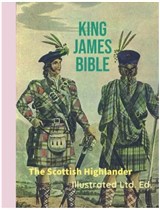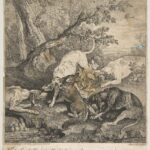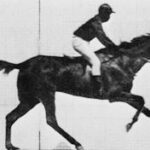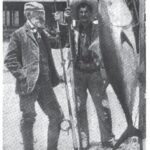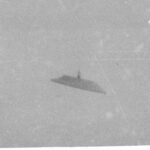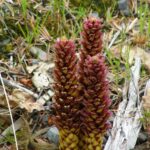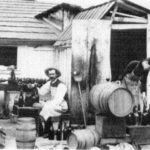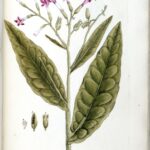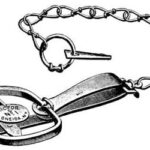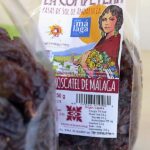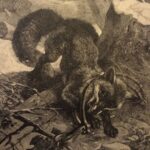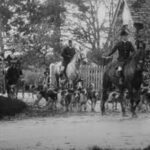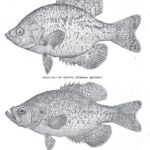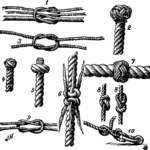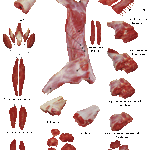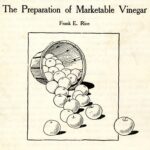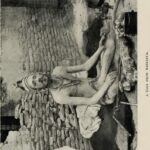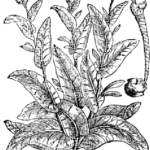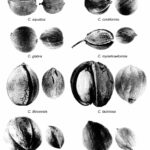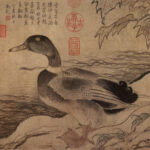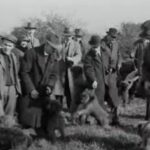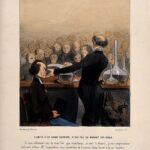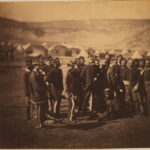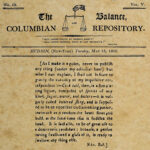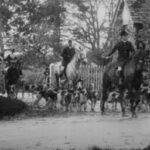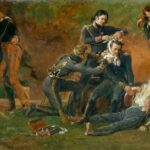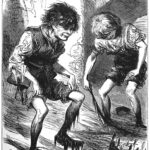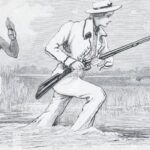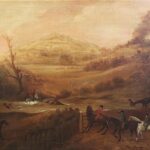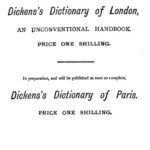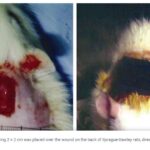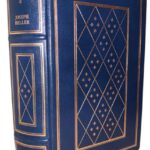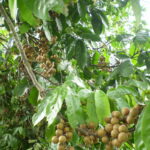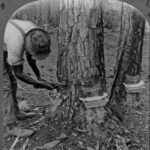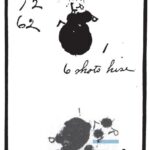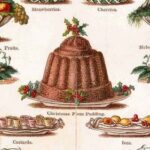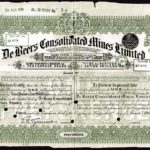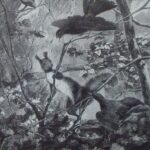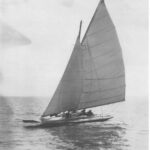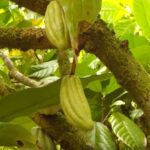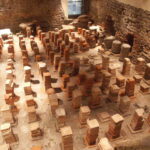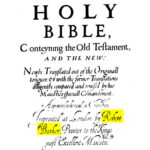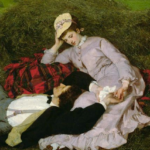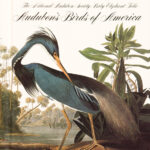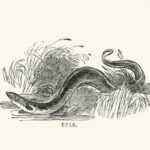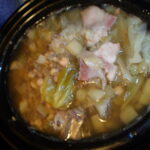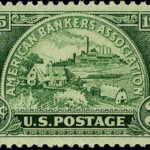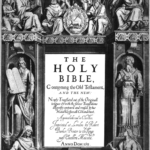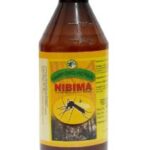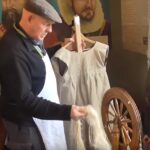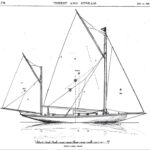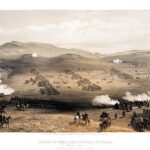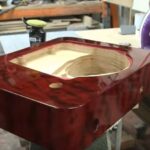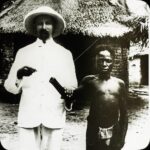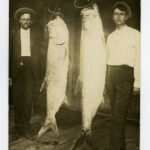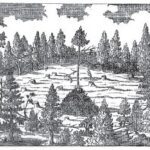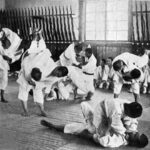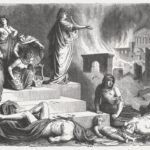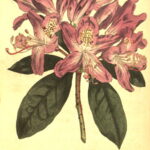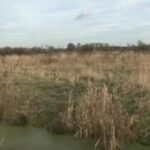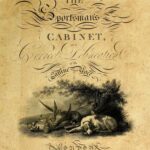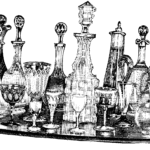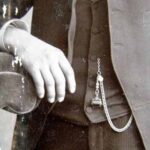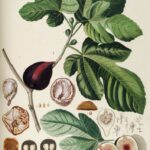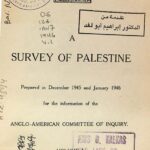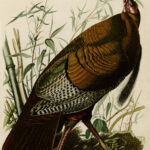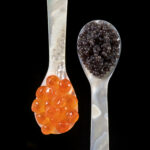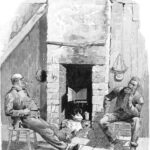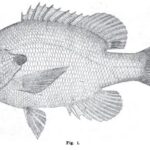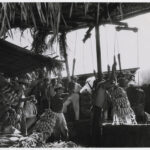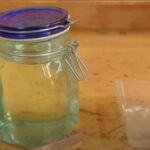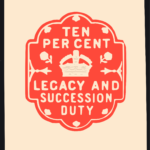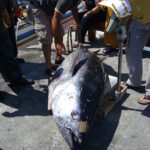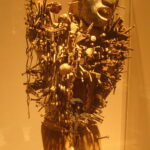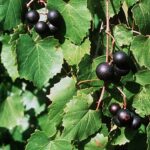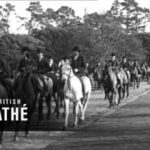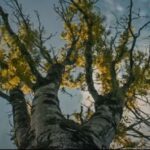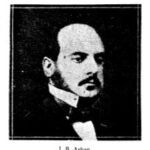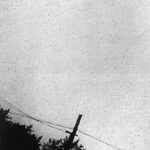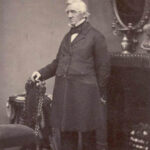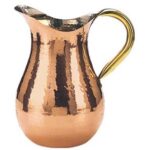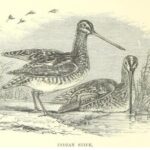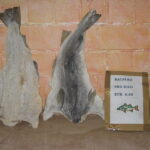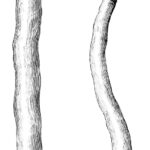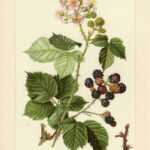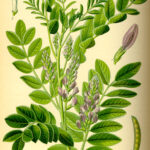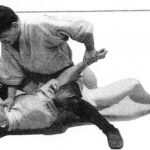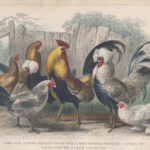
WIPO HQ Geneva
UNITED STATES PLANT VARIETY PROTECTION ACT
TITLE I – PLANT VARIETY PROTECTION OFFICE
Chapter Section
1. Organization and Publications . 1
2. Legal Provisions as to the Plant Variety Protection Office . 21
3. Plant Variety Protection Fees . 31
CHAPTER 1.-ORGANIZATION AND PUBLICATIONS
Section 1. Establishment.2
There is hereby established in the Department of Agriculture an office to be known as the Plant Variety Protection Office, which shall have the functions set forth in this Act. (7 U.S.C. 2321.)
Sec. 2. Seal.
The Plant Variety Protection Office shall have a seal with which documents and certificates evidencing plant variety protection shall be authenticated. (7 U.S.C. 2322.)
Sec. 3. Organization.
The organization of the Plant Variety Protection Office shall, except as provided herein, be determined by the Secretary of Agriculture (hereinafter called the Secretary). The office shall devote itself substantially exclusively to the administration of this Act. (7 U.S.C. 2323.)
Sec. 4. Restrictions on Employees as to Interest in Plant Variety Protection.
Employees of the Plant Variety Protection Office shall be ineligible during the periods of their employment, to apply for plant variety protection and to acquire directly or indirectly, except by inheritance or bequest, any right or interest in any matters before that office. This section shall not apply to members of the Plant Variety Protection Board who are not otherwise employees of the Plant Variety Protection Office. (7 U.S.C. 2324.)
Sec. 5. Repealed. 3 (7 U.S.C. 2325.)
Sec. 6. Regulations.
The Secretary may establish regulations, not inconsistent with law, for the conduct of proceedings in the Plant Variety Protection Office after consultations with the Plant Variety Protection Board. (7 U.S.C. 2326.) 22 Sec. 1 of Pub. L. 96-574, Dec. 22, 1980, 94 Stat. 3350, substituted “an office” for “a bureau”. Section 1 of Pub. L. 103-349, 108 Stat. 3136, Oct. 6, 1994 reads:
“SECTION 1. SHORT TITLE; REFERENCES.
“(a) SHORT TITLE.- This Act may be cited as the “Plant Variety Protection Act Amendments of 1994”.
“(b) REFERENCES TO PLANT VARIETY PROTECTION ACT.- Except as otherwise expressly provided, whenever in this Act an amendment or repeal is expressed in terms of an amendment to, or repeal of, a section or other provision, the reference shall be considered to be made to a section or other provision of the Plant Variety Protection Act (7 U.S.C. 2321 et seq.).” (7 U.S.C. 2321 note.)
3 Sec. 2 of Pub. L. 96-574, 94 Stat. 3350, Dec. 22, 1980, repealed Section 5 which required employees to obtain surety bonds.
Sec. 7. Plant Variety Protection Board.
(a)4 APPOINTMENT-The Secretary shall appoint a Plant Variety Protection Board. The Board shall consist of individuals who are experts in various areas of varietal development covered by this Act. Membership of the Board shall include farmer representation and shall be drawn approximately equally from the private or seed industry sector and from the sector of government or the public. The Secretary or the designee of the Secretary shall act as chairperson of the Board without voting rights except in the case of ties.
(b) FUNCTIONS OF BOARD-The functions of the Plant Variety Protection Board shall include:
(1) Advising the Secretary concerning the adoption of Rules and Regulations to facilitate the proper administration of this Act;
(2) Making advisory decisions on all appeals from the examiner. The Board shall determine whether to act as a full Board or by panels it selects; and whether to review advisory decisions made by a panel. For service on such appeals, the Board may select, as temporary members, experts in the area to which the particular appeal relates; and
(3) Advising the Secretary on all questions under section 44.
(c) COMPENSATION OF BOARD-The members of the Plant Variety Protection Board shall serve without compensation except for standard government reimbursable expenses. (7 U.S.C. 2327.)
Sec. 8. Library.
The Secretary shall maintain a library of scientific and other works and periodicals, both foreign and domestic, in the Plant Variety Protection Office to aid the examiners5 in the discharge of their duties. (7 U.S.C. 2328.)
Sec. 9. Register of Protected Plant Varieties.6
The Secretary shall maintain a register of descriptions of United States protected plant varieties. (7 U.S.C. 2329.)
Sec. 10. Publications.
(a)7 The Secretary may publish, or cause to be published, in such format as the Secretary shall determine to be suitable, the following:
(1) The descriptions of plant varieties protected including drawings and photographs.
(2) The Official Journal of the Plant Variety Protection Office including annual indices.
(3) Pamphlet copies of the plant variety protection laws and rules of practice and circulars or other publications relating to the business of the Office. 3
4 As amended by Sec. 13(a) of Pub. L. 103-349, 108 Stat. 3142, Oct. 6, 1994, to eliminate gender specific language.
5 Section 3 of Pub. L. 96-574, 94 Stat. 3350, struck the word “officers” and inserted in lieu thereof the word “examiners”.
6 Section 4 of Pub. L. 96-574, 94 Stat. 3350, substituted “descriptions” for “published specifications”, and deleted provisions requiring maintenance of a file for other information.
7 Sec. 13(b) of Pub. L. 103-349, 108 Stat. 3143, Oct. 6, 1994, eliminated gender-specific language; and Sec. 5 of Pub. L. 96-574, 94 Stat. 3350, substituted “descriptions of plant varieties protected” for “specifications for plant variety protection” in paragraph (1).
(b)8 The Secretary may (1) establish public facilities for the searching of plant variety protection records and materials, and (2) from time to time, as through an information service, disseminate to the public those portions of the technological and other public information available to or within the Plant Variety Protection Office to encourage innovation and promote the progress of plant breeding.
(c)9 The Secretary may exchange any of the publications specified for publications desirable for the use of the Plant Variety Protection Office. The Secretary may exchange copies of descriptions, drawings, and photographs of United States protected plant varieties for copies of descriptions, drawings, and photographs of applications and protected plant varieties of foreign countries. (7 U.S.C. 2330.)
Sec. 11. Copies for Public Libraries.
The Secretary may supply printed copies of descriptions,10 drawings, and photographs of protected plant varieties to public libraries in the United States which shall maintain such copies for the use of the public. (7 U.S.C. 2331.)
“SEC. 14. TRANSITIONAL PROVISIONS.
“(a) IN GENERAL.- Except as provided in this section, any variety for which a certificate of plant variety protection has been issued prior to the effective date of this Act, and any variety for which an application is pending on the effective date of this Act, shall continue to be governed by the Plant Variety Protection Act (7 U.S.C. 2321 et seq.), as in effect on the day before the effective date of this Act.
“(b) APPLICATIONS REFILED.-
“(1) IN GENERAL.- An applicant may refile a pending application on or after the effective date of this Act.
“(2) EFFECT OF REFILING.- If a pending application is refiled on or after the effective date of this Act−
“(A) eligibility for protection and the terms of protection shall be governed by the Plant Variety Protection Act, as amended by this Act; and
“(B) for purposes of section 42 of the Plant Variety Protection Act, as amended by section 3 of this Act, the date of filing shall be the date of filing of the original application.
“(c) LABELING.-
“(1) IN GENERAL.- To obtain the protection provided to an owner of a protected variety under the Plant Variety Protection Act (7 U.S.C. 2321 et seq.) (as amended by this Act), a notice given by an owner concerning the variety under section 127 of the Plant Variety Protection Act (7 U.S.C. 2567) shall state that the variety is protected under such Act (as amended by this Act).
“(2) SANCTIONS.- Any person that makes a false or misleading statement or claim, or uses a false or misleading label, concerning protection described in paragraph (1) shall be subject to the sanctions described in section 128 of the Plant Variety Protection Act (7 U.S.C. 2568).
“SEC. 15. EFFECTIVE DATE.
“This Act and the amendments made by this Act [amending sections 2327, 2330, 2353, 2354, 2357, 2401, 2402, 2404, 2422, 2423, 2424, 2425, 2442, 2461, 2462, 2463, 2482, 2483, 2486, 2501, 2504, 2532, 2541, 2542, 2543, 2561, 2566, 2567, 2568, and 2570 and repealing sections 2463, 2502, and 2503] shall become effective 180 days after the date of enactment of this Act.” (7 U.S.C. 2401 note.)
CHAPTER 2.-LEGAL PROVISIONS AS TO THE PLANT VARIETY PROTECTION OFFICE
Sec. 21. Day for Taking Action Falling on Saturday, Sunday, or Holiday.
When the day, or the last day, for taking any action or paying any fee in the United States Plant Variety Protection Office falls on Saturday, Sunday, a holiday within the District of Columbia, or on any other day the Plant Variety Protection Office is closed for the receipt of papers, the action may be taken or the fee paid, on the next succeeding business day. (7 U.S.C. 2351.)
Sec. 22. Form of Papers Filed.
The Secretary may by regulations prescribe the form of papers to be filed in the Plant Variety Protection Office. (7 U.S.C. 2352.)
Sec. 23. Testimony in Plant Variety Protection Office Cases.11
The Secretary may establish regulations for taking affidavits, depositions, and other evidence required in cases before the Plant Variety Protection Office. Any officer authorized by law to take depositions to be used in the courts of the United States, or of the State where the officer resides, may take such affidavits and depositions, and swear the witnesses. If any person acts as a hearing officer by authority of the Secretary, the person shall have like power. (7 U.S.C. 2353.)
8 Section 6 of Pub. L. 96-574, 94 Stat. 3350, repealed former subsection (b) which related to photolithography and lithography. Section 7 of Pub. L. 96-574 redesignated former subsection (c) as (b), and substituted “plant breeding” for “the useful arts”.
9 Section 8 of Pub. L. 96-574 redesignated former subsection (d) as (c), and substituted “descriptions” for “specifications” in the second sentence.
10 Section 9 of Pub. L. 96-574 substituted “descriptions” for “specifications”.
11 Section as amended by Sec. 13 of Pub. L. 103-349, 108 Stat. 3143, Oct. 6, 1994, to eliminate gender-specific language.
12 Ibid.
13 Ibid.
Sec. 24. Subpoenas, Witnesses.12
(a) The clerk of any United States court for the district wherein testimony is to be taken in accordance with regulations established by the Secretary for use in any contested case in the Plant Variety Protection Office shall, upon the application of any party thereof, issue a subpoena for any witness residing or being within such district or within one hundred miles of the stated place in such district, commanding the witness to appear and testify before an officer in such district authorized to take depositions and affidavits, at the time and place stated in the subpoena. The provisions of the Federal Rules of Civil Procedure relating to the attendance of witnesses and the production of documents and things shall apply to contested cases in the Plant Variety Protection Office insofar as consistent with such regulations.
(b) Every witness subpoenaed or testifying shall be allowed the fees and traveling expenses allowed to witnesses attending the United States district courts.
(c) A judge of a court whose clerk issued a subpoena may enforce obedience to the process or punish disobedience as in other like cases, on proof that a witness, served with such subpoena, neglected or refused to appear or to testify. No witness shall be deemed guilty of contempt for disobeying such subpoena unless the fees and traveling expenses of the witness in going to, and returning from, one day’s attendance at the place of examination, are paid or tendered the witness at the time of the service of the subpoena; nor for refusing to disclose any secret matter except upon appropriate order of the court which issued the subpoena or of the Secretary. (7 U.S.C. 2354.)
Sec. 25. Effect of Defective Execution.
Any document to be filed in the Plant Variety Protection Office and which is required by any law or regulation to be executed in a specified manner may be provisionally accepted by the Secretary despite a defective execution, provided a properly executed document is submitted within such time as may be prescribed. (7 U.S.C. 2355.)
Sec. 26. Regulations for Practice Before the Office.
The Secretary shall prescribe regulations governing the admission to practice and conduct of persons representing applicants or other parties before the Plant Variety Protection Office. The Secretary may, after notice and opportunity for a hearing, suspend or exclude, either generally or in any particular case, from further practice before the Office of Plant Variety Protection any person shown to be incompetent or disreputable or guilty of gross misconduct. (7 U.S.C. 2356.)
Sec. 27. Unauthorized Practice.13
Anyone who in the United States engages in direct or indirect practice before the Office of Plant Variety Protection while suspended or excluded under section 26, or without being admitted to practice before the Office, shall be liable in a civil action for the return of all money received, and for compensation for damage done by such person and also may be enjoined from such practice. However, there shall be no liability for damage if such person establishes that the work was done competently and without negligence. This section does not apply to anyone who, without a claim of self-sufficiency, works under the supervision of another who stands admitted and is the responsible party; nor to anyone who establishes that the person acted only on behalf of any employer by whom the person was regularly employed. (7 U.S.C. 2357.) 5
14 Section as amended by Pub. L. 96-574, 94 Stat. 3350, Dec. 22, 1980. Pub. L. 100-203, 101 Stat. 1330-28, Dec. 22, 1987, generally amended the section, including the authority to invest the funds collected.
15 As amended by Sec. 2 of Pub. L. 103-349, 108 Stat. 3136, Oct. 6, 1994. Sections 14 and 15 of Pub. L. 103-349, 108 Stat. 3144 read:
16 Sec. 3 of Pub. L. 103-349, 108 Stat. 3138, Oct. 6, 1994; Sec. (a) defines what is protectable, “new”, “distinct”, “uniform”, and “stable”; and Sec. (b) defines procedure for multiple applicants, requirements completed on the same date, and varieties indistinguishable. Sec. 913(a) of Pub. L. 104-127, 110 Stat. 1186, April 4, 1996; amended Sec. 42(a)(1)(B)(i) by waiving the four year limitation for a period of one year, for a tuber propagated plant variety
17 As amended by Sec. 13(f) of Pub. L. 103-349, 108 Stat. 3143, Oct 6, 1994, to eliminate gender-specific language.
18 Sec. 4 of Pub. L. 103-349, 108 Stat. 3139, Oct. 6, 1994, added “The variety shall be named in accordance with the regulations issued by the Secretary.” to the end of paragraph (1); struck “novelty” in paragraph (2) and inserted “distinctiveness, uniformity, and stability”; redesignated paragraphs (3) and (4) as paragraphs (4) and (5), respectively; and added a new paragraph (3); and inserted “(including any propagating material)” after “basic seed” in paragraph (4).
19 Section 11 of Pub. L. 96-574, 94 Stat. 3350, deleted provision relating to adding of declaration by amendment.
20 As amended by Sec. 13 of Pub. L. 103-349, 108 Stat. 3143, Oct. 6, 1994, to eliminate gender-specific language.
21 Ibid.
22 Sec. 5 of Pub. L. 103-349, 108 Stat. 3139, Oct. 6, 1994, redesignated the first and second sentences of Sec. (a) as paragraphs (1) and (2), respectively; added “, not including the date on which the application is filed in the foreign country” at the end of paragraph (1); and added a new paragraph (3). Sec. 13(i) of Pub. L. 103-349, 108 Stat. 3143, Oct. 6, 1994, eliminated gender-specific language.
(4) A declaration that a viable sample of basic seed (including any propagating material) necessary for propagation of the variety will be deposited and replenished periodically in a public repository in accordance with regulations to be established hereunder. 19
(5) A statement of the basis of applicant’s ownership. (7 U.S.C. 2422.)
23 Pub. L. 96-574, 94 Stat. 3350, added provision relating to the name of the applicant and whether the variety is to be sold by variety name only.
24 Pub. L. 96-574, 94 Stat. 3350, added “information regarding” following “publication of”.
25 Sec. 6 of Pub. L. 103-349, 108 Stat. 3140, Oct. 6, 1994, struck “six months” and inserted “at least 30 days, and not more than 180 days”, and struck “in exceptional circumstances”; and Sec. 13(j) of Pub. L. 103-349, 108 Stat. 3143, eliminated gender-specific language.
CHAPTER 3.-PLANT VARIETY PROTECTION FEES
Sec. 31. Plant Variety Protection Fees.14
(a) IN GENERAL.-The Secretary shall, under such regulations as the Secretary may prescribe, charge and collect reasonable fees for services performed under this Act.
(b) LATE PAYMENT PENALTY.-On failure to pay such fees, the Secretary shall assess a late payment penalty. Such overdue fees shall accrue interest as required by section 3717 of title 31, United States Code.
(c) DISPOSITION OF FUNDS.-Such fees, late payment penalties, and accrued interest collected shall be credited to the account that incurs the cost and shall remain available without fiscal year limitation to pay the expenses incurred by the Secretary in carrying out this Act. Such funds collected (including late payment penalties and any interest earned) may be invested by the Secretary in insured or fully collateralized, interest-bearing accounts or, at the discretion of the Secretary, by the Secretary of the Treasury in United States Government debt instruments.
(d) ACTIONS FOR NONPAYMENT.-The Attorney General may bring an action for the recovery of charges that have not been paid in accordance with this Act against any person obligated for payment of such charges under this Act in any United States district court or other United States court for any territory or possession in any jurisdiction in which the person is found, resides, or transacts business. The court shall have jurisdiction to hear and decide the action.
(e) AUTHORIZATION OF APPROPRIATIONS-There are authorized to be appropriated such sums as are necessary to carry out this Act. (7 U.S.C. 2371.)
Sec. 32. Payment of Plant Variety Protection Fees; Return of Excess Amounts.
All fees shall be paid to the Secretary, and the Secretary may refund any sum paid by mistake or in excess of the fee required. (7 U.S.C. 2372.) 6 7
TITLE II-PROTECTABILITY OF PLANT VARIETIES AND CERTIFICATES OF PROTECTION
Chapter Section
4. Protection of Plant Varieties …………………………………………………………………………………………………………….. 41
5. Applications: Form, Who May File, Relating Back, Confidentiality …………………………………………………….. 51
6. Examinations: Response Time, Initial Appeals ………………………………………………………………………………….. 61
7. Appeals to Courts and Other Review ………………………………………………………………………………………………… 71
8. Certificates of Plants Variety Protection …………………………………………………………………………………………….. 81
9. Reexamination After Issue, and Contested Proceedings ………………………………………………………………………. 91
CHAPTER 4.-PROTECTABILITY OF PLANT VARIETIES
Sec. 41. Definitions and Rules of Construction.15
(a) DEFINITIONS.- As used in this Act:
(1) BASIC SEED.- The term ‘basic seed’ means the seed planted to produce certified or commercial seed.
(2) BREEDER.- The term ‘breeder’ means the person who directs the final breeding creating a variety or who discovers and develops a variety. If the actions are conducted by an agent on behalf of a principal, the principal, rather than the agent, shall be considered the breeder. The term does not include a person who redevelops or rediscovers a variety the existence of which is publicly known or a matter of common knowledge. 8
(3) ESSENTIALLY DERIVED VARIETY.-
(A) IN GENERAL.- The term ‘essentially derived variety’ means a variety that-
(i) is predominantly derived from another variety (referred to in this paragraph as the ‘initial variety’) or from a variety that is predominantly derived from the initial variety, while retaining the expression of the essential characteristics that result from the genotype or combination of genotypes of the initial variety;
(ii) is clearly distinguishable from the initial variety; and
(iii) except for differences that result from the act of derivation, conforms to the initial variety in the expression of the essential characteristics that result from the genotype or combination of genotypes of the initial variety.
(B) METHODS.- An essentially derived variety may be obtained by the selection of a natural or induced mutant or of a somaclonal variant, the selection of a variant individual from plants of the initial variety, backcrossing, transformation by genetic engineering, or other method.
(4) KIND.- The term ‘kind’ means one or more related species or subspecies singly or collectively known by one common name, such as soybean, flax, or radish.
(5) SEED.- The term ‘seed’, with respect to a tuber propagated variety, means the tuber or the part of the tuber used for propagation.
(6) SEXUALLY REPRODUCED.- The term ‘sexually reproduced’ includes any production of a variety by seed, but does not include the production of a variety by tuber propagation.
(7) TUBER PROPAGATED.- The term ‘tuber propagated’ means propagated by a tuber or a part of a tuber.
(8) UNITED STATES.- The terms ‘United States’ and ‘this country’ mean the United States, the territories and possessions of the United States, and the Commonwealth of Puerto Rico.
(9) VARIETY.- The term ‘variety’ means a plant grouping within a single botanical taxon of the lowest known rank, that, without regard to whether the conditions for plant variety protection are fully met, can be defined by the expression of the characteristics resulting from a given genotype or combination of genotypes, distinguished from any other plant grouping by the expression of at least one characteristic and considered as a unit with regard to the suitability of the plant grouping for being propagated unchanged. A variety may be represented by seed, transplants, plants, tubers, tissue culture plantlets, and other matter.
(b) RULES OF CONSTRUCTION.-For the purposes of this Act:
(1) SALE OR DISPOSITION FOR NONREPRODUCTIVE PURPOSES.- The sale or disposition, for other than reproductive purposes, of harvested material produced as a result of experimentation or testing of a variety to ascertain the characteristics of the variety, or as a by-product of increasing a variety, shall not be considered to be a sale or disposition for purposes of exploitation of the variety.
(2) SALE OR DISPOSITION FOR REPRODUCTIVE PURPOSES.- The sale or disposition of a variety for reproductive purposes shall not be considered to be a sale or disposition for the purposes of exploitation of the variety if the sale or disposition is done as an integral part of a program of experimentation or testing to ascertain the characteristics of the variety, or to increase the variety on behalf of the breeder or the successor in interest of the breeder.
(3) SALE OR DISPOSITION OF HYBRID SEED.- The sale or disposition of hybrid seed shall be considered to be a sale or disposition of harvested material of the varieties from which the seed was produced.
(4) APPLICATION FOR PROTECTION OR ENTERING INTO A REGISTER OF VARIETIES.- The filing of an application for the protection or for the entering of a variety in an official register of varieties, in any country, shall be considered to render the variety a matter of common knowledge from the date of the application, if the application leads to the granting of protection or to the entering of the variety in the official register of varieties, as the case may be.
(5) DISTINCTNESS.- The distinctness of one variety from another may be based on one or more identifiable morphological, physiological, or other characteristics (including any characteristics evidenced by processing or product characteristics, such as milling and baking characteristics in the case of wheat) with respect to which a difference in genealogy may contribute evidence. 9
(6) PUBLICLY KNOWN VARIETIES.-
(A) IN GENERAL.-A variety that is adequately described by a publication reasonably considered to be a part of the public technical knowledge in the United States shall be considered to be publicly known and a matter of common knowledge.
(B) DESCRIPTION.-A description that meets the requirements of subparagraph (A) shall include a disclosure of the principal characteristics by which a variety is distinguished.
(C) OTHER MEANS.-A variety may become publicly known and a matter of common knowledge by other means. (7 U.S.C. 2401.)
Sec. 42. Right to Plant Variety Protection; Plant Varieties Protectable.16
(a) IN GENERAL.-The breeder of any sexually reproduced or tuber propagated plant variety (other than fungi or bacteria) who has so reproduced the variety, or the successor in interest of the breeder, shall be entitled to plant variety protection for the variety, subject to the conditions and requirements of this Act, if the variety is-
(1) new, in the sense that, on the date of filing of the application for plant variety protection, propagating or harvested material of the variety has not been sold or otherwise disposed of to other persons, by or with the consent of the breeder, or the successor in interest of the breeder, for purposes of exploitation of the variety-
(A) in the United States, more than 1 year prior to the date of filing; or
(B) in any area outside of the United States-
(i) more than 4 years prior to the date of filing, except that in the case of a tuber propagated plant variety the Secretary may waive the 4-year limitation for a period ending 1 year after the date of enactment of the Federal Agriculture Improvement and Reform Act of 1996; or
(ii) in the case of a tree or vine, more than 6 years prior to the date of filing;
(2) distinct, in the sense that the variety is clearly distinguishable from any other variety the existence of which is publicly known or a matter of common knowledge at the time of the filing of the application;
(3) uniform, in the sense that any variations are describable, predictable, and commercially acceptable; and
(4) stable, in the sense that the variety, when reproduced, will remain unchanged with regard to the essential and distinctive characteristics of the variety with a reasonable degree of reliability commensurate with that of varieties of the same category in which the same breeding method is employed.
(b) MULTIPLE APPLICANTS.-
(1) IN GENERAL.- If 2 or more applicants submit applications on the same effective filing date for varieties that cannot be clearly distinguished from one another, but that fulfill all other requirements of subsection (a), the applicant who first complies with all requirements of this Act shall be entitled to a certificate of plant variety protection, to the exclusion of any other applicant.
(2) REQUIREMENTS COMPLETED ON SAME DATE.-
(A) IN GENERAL.-Except as provided in subparagraph (B), if 2 or more applicants comply with all requirements for protection on the same date, a certificate shall be issued for each variety.
(B) VARIETIES INDISTINGUISHABLE.-If the varieties that are the subject of the applications cannot be distinguished in any manner, a single certificate shall be issued jointly to the applicants. (7 U.S.C. 2402.) 10
Sec. 43. Reciprocity Limits.
Protection under the Act may, by regulation, be limited to nationals of the United States, except where this limitation would violate a treaty and except that nationals of a foreign state in which they are domiciled shall be entitled to so much of the protection here afforded as is afforded by said foreign state to nationals of the United States for the same genus and species. (7 U.S.C. 2403.)
Sec. 44. Public Interest in Wide Usage.17
The Secretary may declare a protected variety open to use on a basis of equitable remuneration to the owner, not less than a reasonable royalty, when the Secretary determines that such declaration is necessary in order to insure an adequate supply of fiber, food, or feed in this country and that the owner is unwilling or unable to supply the public needs for the variety at a price which may reasonably be deemed fair. Such declaration may be, with or without limitation, with or without designation of what the remuneration is to be; and shall be subject to review as under section 71 or 72 (any finding that the price is not reasonable being reviewable), and shall remain in effect not more than two years. In the event litigation is required to collect such remuneration, a higher rate may be allowed by the court. (7 U.S.C. 2404.)
CHAPTER 5.-APPLICATIONS; FORM, WHO MAY FILE, RELATING BACK, CONFIDENTIALITY
Sec. 51. Application for Recognition of Plant Variety Rights.
(a) An application for a certificate of Plant Variety Protection may be filed by the owner of the variety sought to be protected. The application shall be made in writing to the Secretary, shall be signed by or on behalf of the applicant, and shall be accompanied by the prescribed fee.
(b) An error as to the naming of the breeder, without deceptive intent, may be corrected at any time, in accordance with regulations established by the Secretary. (7 U.S.C. 2421.)
Sec. 52. Content of Application.18
An application for a certificate recognizing plant variety rights shall contain:
(1) The name of the variety except that a temporary designation will suffice until the certificate is to be issued. The variety shall be named in accordance with regulations issued by the Secretary.
(2) A description of the variety setting forth its distinctiveness, uniformity, and stability and a description of the genealogy and breeding procedure, when known. The Secretary may require amplification, including the submission of adequate photographs or drawings or plant specimens, if the description is not adequate or as complete as is reasonably possible, and submission of records or proof of ownership or of allegations made in the application. An applicant may add to or correct the description at any time, before the certificate is issued, upon a showing acceptable to the Secretary that the revised description is retroactively accurate. Courts shall protect others from any injustice which would result. The Secretary may accept records of the breeder and of any official seed certifying agency in this country as evidence of stability where applicable.
(3) A statement of the basis of the claim of the applicant that the variety is new. 11
Sec. 53. Joint Breeders.20
(a) When two or more persons are the breeders, one person (or the successor of the person) may apply, naming the others.
(b) The Secretary, after such notice as the Secretary may prescribe, may issue a certificate of plant variety protection to the applicant and such of the other breeders (or their successors in interest) as may have subsequently joined in the application. (7 U.S.C. 2423.)
Sec. 54. Death or Incapacity of Breeder.21
Legal representatives of deceased breeders and of those under legal incapacity may make application for plant variety protection upon compliance with the requirements and on the same terms and conditions applicable to the breeder or the successor in interest of the breeder. (7 U.S.C. 2424.)
Sec. 55. Benefit of Earlier Filing Date.22
(a) (1) An application for a certificate of plant variety protection filed in this country based on the same variety, and on rights derived from the same breeder, on which there has previously been filed an application for plant variety protection in a foreign country which affords similar privileges in the case of applications filed in the United States by nationals of the United States, shall have the same effect as the same application would have if filed in the United States on the date on which the application for plant variety protection for the same variety was first filed in such foreign country, if the application in this country is filed within twelve months from the earliest date on which such foreign application was filed, not including the date on which the application is filed in the foreign country.
(2) No application shall be entitled to a right of priority under this section, unless the applicant designates the foreign application in the application filed in the United States or by amendment thereto and, if required by the Secretary, furnishes such copy, translation or both, as the Secretary may specify.
(3) (A) An applicant entitled to a right of priority under this subsection shall be allowed to furnish any necessary information, document, or material required for the purpose of the examination of the application during-
(i) the 2-year period beginning on the date of the expiration of the period of priority; or
(ii) if the first application is rejected or withdrawn, an appropriate period after the rejection or withdrawal, to be determined by the Secretary.
(B) An event occurring within the period of priority (such as the filing of another application or use of the variety that is the subject of the first application) shall not constitute a ground for rejecting the application or give rise to any third party right. 12
(b) An application for a certificate of plant variety protection for the same variety as was the subject of an application previously filed in the United States by or on behalf of the same person, or by the predecessor in title of the person, shall have the same effect as to such variety as though filed on the date of the prior application if filed before the issuance of the certificate or other termination of proceedings on the first application or on an application similarly entitled to the benefit of the filing date of the first application and if it contains or is amended to contain a specific reference to the earlier filed application.
(c) A later application shall not by itself establish that a characteristic newly described was in the variety at the time of the earlier application. (7 U.S.C. 2425.)
Sec. 56. Confidential Status of Application.23
Applications for plant variety protection and their contents shall be kept in confidence by the Plant Variety Protection Office, by the Board, and by the offices in the Department of Agriculture to which access may be given under regulations. No information concerning the same shall be given without the authority of the owner, unless necessary under special circumstances as may be determined by the Secretary, except that the Secretary may publish the variety names designated in applications, stating the kind to which each applies, the name of the applicant, and whether the applicant specified that the variety is to be sold by variety name only as a class of certified seed. (7 U.S.C. 2426.)
Sec. 57. Publication. 24
The Secretary may establish regulations for the publication of information regarding any pending application when publication is requested by the owner. (7 U.S.C. 2427.)
CHAPTER 6.-EXAMINATION, RESPONSE TIME, INITIAL APPEALS
Sec. 61. Examination of Application.
The Secretary shall cause an examination to be made of the application and if on such examination it is determined that the applicant is entitled to plant variety protection under the law, the Secretary shall issue a notice of allowance of plant variety protection therefor as hereinafter provided. (7 U.S.C. 2441.)
Sec. 62. Notice of Refusal; Reconsideration.
(a) Whenever an application is refused, or any objection or requirement made by the examiner, the Secretary shall notify the applicant thereof, stating the reasons therefor, together with such information and references as may be useful in judging the propriety of continuing the prosecution of the application; and if after receiving such notice the applicant requests reconsideration, with or without amendment, the application shall be reconsidered.
(b)25 For taking appropriate action after the mailing to an applicant of an action other than allowance, the applicant shall be allowed at least 30 days, and not more than 180 days, or such other time as the Secretary shall set in the refusal, or such time as the Secretary may allow as an extension. Without such extension, action may be taken up to three months late by paying an additional fee to be prescribed by the Secretary. (7 U.S.C. 2442.) 13
26 As amended by Pub. L. 97-164, 96 Stat. 45, April 2, 1982, to provide the Court of Appeals for the Federal Circuit with exclusive jurisdiction over appeals. See footnote 50. Section further amended by Sec. 8(d)(1) of Pub. L. 103-349, 108 Stat. 3141, Oct. 6, 1994, to strike “92,” after “91”.
27 As amended by Sec. 13(k) of Pub. L. 103-349, 108 Stat. 3143, Oct. 6, 1994, to eliminate gender-specific language.
28 Sec. 8(c)(2) of Pub. L. 103-349, 108 Stat. 3141, Oct. 6, 1994, repealed Sec. 73, relating to appeal or civil action in contested cases. Prior to repeal, subsection (b) of Sec. 73 was transferred to Sec. 92 (7 U.S.C. 2504) by Sec. 8(c)(1) of Pub. L. 103-349, 108 Stat. 3140, Oct. 6, 1994.
Sec. 63. Initial Appeal.
When an application for plant variety protection has been refused by the Plant Variety Protection Office, the applicant may appeal to the Secretary. The Secretary shall seek the advice of the Plant Variety Protection Board on all appeals, before deciding the appeal. (7 U.S.C. 2443.)
CHAPTER 7.-APPEALS TO COURTS AND OTHER REVIEW
Sec. 71. Appeals.26
From the decisions made under sections 44, 63, 91, and 128 appeal may, within sixty days or such further times as the Secretary allows, be taken under the Federal Rules of Appellate Procedure. The United States Court of Appeals for the Federal Circuit shall have jurisdiction of any such appeal. (7 U.S.C. 2461.)
Sec. 72. Civil Action Against Secretary.27
An applicant dissatisfied with a decision under section 63 or 91 of this title, may, as an alternative to appeal, have remedy by civil action against the Secretary in the United States District Court for the District of Columbia. Such action shall be commenced within sixty days after such decision or within such further time as the Secretary allows. The court may, in the case of review of a decision by the Secretary refusing plant variety protection, adjudge that such applicant is entitled to receive a certificate of plant variety protection for the variety as specified in the application as the facts of the case may appear, on compliance with the requirements of this Act. (7 U.S.C. 2462.)
Sec. 73. Repealed.28 (7 U.S.C. 2463.)
CHAPTER 8.-CERTIFICATES OF PLANT VARIETY PROTECTION
Sec. 81. Plant Variety Protection.
(a) If it appears that a certificate of plant variety protection should be issued on an application, a written notice of allowance shall be given or mailed to the owner. The notice shall specify the sum, constituting the issue fee, which shall be paid within one month thereafter.
(b) Upon timely payment of this sum, and provided that deposit of seed has been made in accordance with section 52 (3), the certificate of plant variety protection shall issue.
(c) If any payment required by this section is not timely made, but is submitted with an additional fee prescribed by the Secretary within nine months after the due date or within such further time as the Secretary may allow, it shall be accepted. (7 U.S.C. 2481.) 14
29 As amended by Sec. 13 (l) of Pub. L. 103-349, 108 Stat. 3143, Oct. 6, 1994, to eliminate gender-specific language.
30 Sec. 7 of Pub. L. 103-349, 108 Stat. 3140, Oct. 6, 1994, designated first through fourth sentences of subsection (a) as paragraphs (1) through (4), respectively, and revised paragraphs (2) and (3) (as so designated). Pub. L. 96-574, 94 Stat. 3350, substituted “eighteen” for “seventeen”. In subsection (b), Sec. 7(2) of Pub. L. 103-349, 108 Stat. 3140, Oct. 6, 1994, substituted “20” for “eighteen” and added protection for a tree or vine for a 25 year term. As amended by Sec. 7(3) of Pub. L. 103-349, 108 Stat. 3140, Oct. 6, 1994, which substituted “repository, or requiring the submission of a different name for the variety, except that” for “repository: Provided, however, That”; and Sec. 13(m) of Pub. L. 103-349, 108 Stat. 3143, eliminated gender-specific language. Sec. 913(b) of Pub. L. 104-127, 110 Stat. 1186, April 4, 1996; amended the term of protection to expire 20 years after the date of protection granted to the variety outside the United States. Sec. 913(b)(3) erroneously referred to paragraph (2) of Section 83(b). Section 913(b)(3) reads:
“(3) in paragraph (2) (as so designated), by striking “except that, in the case” and inserting the following:
“except that-”
The intent was to refer to paragraph (1). The language in the text reflects the intent of Congress.
Sec. 82. How Issued.29
A certificate of plant variety protection shall be issued in the name of the United States of America under the seal of the Plant Variety Protection Office, and shall be signed by the Secretary or have the signature of the Secretary placed thereon, and shall be recorded in the Plant Variety Protection Office. (7 U.S.C. 2482.)
Sec. 83. Contents and Term of Plant Variety Protection.30
(a) (1) Every certificate of plant variety protection shall certify that the breeder (or the successor in interest of the breeder), has the right, during the term of the plant variety protection, to exclude others from selling the variety, or offering it for sale, or reproducing it, or importing it, or exporting it, or using it in producing (as distinguished from developing) a hybrid or different variety therefrom, to the extent provided by this Act.
(2) If the owner so elects, the certificate shall-
(A) specify that seed of the variety shall be sold in the United States only as a class of certified seed; and
(B) if so specified, conform to the number of generations designated by the owner.
(3) An owner may waive a right provided under this subsection, other than a right that is elected by the owner under paragraph (2)(A).
(4) The Secretary may at the discretion of the Secretary permit such election or waiver to be made after certificating and amend the certificate accordingly, without retroactive effect.
(b) Term. –
(1) IN GENERAL.- Except as provided in paragraph (2), the term of plant variety protection shall expire 20 years from the date of issue of the certificate in the United States, except that –
(A) in the case of a tuber propagated plant variety subject to a waiver granted under the section 42(a)(1)(B)(i), the term of the plant variety protection shall expire 20 years after the date of the original grant of the plant breeder’s rights to the variety outside the United States; and
(B) in the case of a tree or vine, the term of the plant variety protection shall expire 25 years from the date of issue of the certificate.
(2) EXCEPTIONS. – If the certificate is not issued within three years from the effective filing date, the Secretary may shorten the term by the amount of delay in the prosecution of the application attributed by the Secretary to the applicant.
(c) The term of plant variety protection shall also expire if the owner fails to comply with regulations, in force at the time of certificating, relating to replenishing seed in a public repository, or requiring the submission of a different name for the variety, except that this expiration shall not occur unless notice is mailed to the last owner recorded as provided in section 101(d) and the last owner fails, within the time allowed thereafter, not less than three months, to comply with said regulations, paying an additional fee to be prescribed by the Secretary. (7 U.S.C. 2483.) 15
31 Pub. L. 96-574, 94 Stat. 3350-3351, authorizes issuance of a corrected certificate instead of a certificate of correction.
32 Pub. L. 96-574, 94 Stat. 3351, provides for reissuance of a corrected certificate when a correction is necessary through a mistake not the fault of the Plant Variety Protection Office.
33 As amended by Sec. 13(n) of Pub. L. 103-349, 108 Stat. 3143, Oct. 6, 1994, to eliminate gender-specific language.
34 Amended by Sec. 13(o) of Pub. L. 103-349, 108 Stat. 3144, Oct. 6, 1994, to eliminate gender-specific language.
35 Pub. L. 96-574, 94 Stat. 3351, struck “specification” and inserted in lieu thereof “description”.
Sec. 84. Correction of Plant Variety Protection Office Mistake.
Whenever a mistake in a certificate of plant variety protection incurred through the fault of the Plant Variety Protection Office is clearly disclosed by the records of the Office, the Secretary may issue, without charge, a corrected certificate of plant variety protection, stating the fact and nature of such mistake. Such certificate of plant variety protection shall have the same effect and operation in law as if the same had been originally issued in such corrected form. (7 U.S.C. 2484.) 31
Sec. 85. Correction of Applicant’s Mistake.32
Whenever a mistake of a clerical or typographical nature, or of minor character, or in the description of the variety, which was not the fault of the Plant Variety Protection Office, appears in a certificate of plant variety protection and a showing has been made that such mistake occurred in good faith, the Secretary may, upon payment of the required fee, issue a corrected certificate if the correction could have been made before the certificate issued. Such certificate of plant variety protection shall have the same effect and operation in law as if the same had been originally issued in such corrected form. (7 U.S.C. 2485.)
Sec. 86. Correction of Named Breeder.33
An error as to the naming of a breeder in the application, without deceptive intent, shall not affect validity of plant variety protection and may be corrected at any time by the Secretary in accordance with regulations established by the Secretary or upon order of a federal court before which the matter is called in question. Upon such correction the Secretary shall issue a certificate accordingly. Such correction shall not deprive any person of any rights the person otherwise would have had. (7 U.S.C. 2486.)
CHAPTER 9.-REEXAMINATION AFTER ISSUE, AND CONTESTED PROCEEDINGS
Sec. 91. Reexamination After Issue.34
(a) Any person may, within five years after the issuance of a certificate of plant variety protection, notify the Secretary in writing of facts which may have a bearing on the protectability of the variety, and the Secretary may cause such plant variety protection to be reexamined in the light thereof.
(b) Reexamination of plant variety protection under this section and appeals shall be pursuant to the same procedures and with the same rights as for original examinations. Abandonment of the procedure while subject to a ruling against the retention of the certificate shall result in cancellation of the plant variety certificate thereon and notice thereof shall be endorsed on copies of the description 35 of the protected plant variety thereafter distributed by the Plant Variety Protection Office.
(c) If a person acting under subsection (a) makes a prima facie showing of facts needing proof, the Secretary may direct that the reexamination include such interparty proceedings as the Secretary shall establish. (7 U.S.C. 2501.) 16
36 Repealed by Sec. 8(a) of Pub. L. 103-349, 108 Stat. 3140, Oct. 6, 1994.
37 Ibid.
38 Sec. 8 of Pub. L. 103-349, 108 Stat. 3140, Oct. 6, 1994, repealed Sections 92 and 93 relating to priority contests; redesignated existing Section 94 (7 U.S.C. 2504) as Sec. 92(a); and struck at the end of subsection (a) of Sec. 92 (as designated) “The provisions of section 73(b) of this title shall apply to actions brought under this section .”; and added subsection (b) which was formerly subsection (b) of Sec. 73 (7 U.S.C. 2463(b)). Further amended by Sec. 13(p) of Pub. L. 103-349, 108 Stat. 3144, to eliminate gender-specific language.
Sec. 92. Repealed.36 (7 U.S.C. 2502.)
Sec. 93. Repealed.37 (7 U.S.C. 2503.)
Sec. 92. Interfering Plant Variety Protection.38
(a) The owner of a certificate of plant variety protection may have relief against another owner of a certificate of the same variety by civil action, and the court may adjudge the question of validity of the respective certificates, or the ownership of the certificate.
(b) Such suit may be instituted against the party in interest as shown by the record of the Plant Variety Protection Office at the time of the decision complained of, but any party in interest may become a party to the action. If there be adverse parties residing in a plurality of districts not embraced within the same State, or an adverse party residing in a foreign country, the United States District Court for the District of Columbia, or any United States district court to which it may transfer the case, shall have jurisdiction and may issue summons against the adverse parties directed to the marshal of any district in which any adverse party resides. Summons against adverse parties residing in foreign countries may be served by publication or otherwise as the court directs. The Secretary shall not be made a party but the Secretary shall have the right to intervene. Judgment of the court in favor of the right of an applicant to plant variety protection shall authorize the Secretary to issue a certificate of plant variety protection on the filing in the Plant Variety Protection Office of a certified copy of the judgment and on compliance with the requirements of this Act. (7 U.S.C. 2504.) 17
39 Sec. 8(d)(2) of Pub. L. 103-349, 108 Stat. 3141, Oct. 6, 1994, inserted “or tuber propagable” after “sexually reproducible” each place it appears.
TITLE III-PLANT VARIETY PROTECTION AND RIGHTS
Chapter Section
10. Ownership and Assignment ……………………………………………………………………………………………………………. 101
11. Infringement of Plant Variety Protection ………………………………………………………………………………………….. 111
12. Remedies for Infringement of Plant Variety Protection, and Other Actions ………………………………………….. 121
13. Intent and Severability …………………………………………………………………………………………………………………. 131
14. Temporary Provision and Related Enactments; Exempted Plants; Miscellaneous …………………………………… 141
CHAPTER 10.-OWNERSHIP AND ASSIGNMENT
Sec. 101. Ownership and Assignment.
(a) Subject to the provisions of this title, plant variety protection shall have the attributes of personal property.
(b) Applications for certificates of plant variety protection, or any interest in a variety, shall be assignable by an instrument in writing. The owner may in like manner license or grant and convey an exclusive right to use of the variety in the whole or any specified part of the United States.
(c) A certificate of acknowledgment under the hand and official seal of a person authorized to administer oaths within the United States, or in a foreign country, of a diplomatic or consular officer of the United States or an officer authorized to administer oaths whose authority is proved by a certificate of a diplomatic or consular officer of the United States, shall be prima facie evidence of the execution of an assignment, grant, license, or conveyance of plant variety protection or application for plant variety protection.
(d) An assignment, grant, conveyance or license shall be void as against any subsequent purchaser or mortgagee for a valuable consideration, without notice, unless it, or an acknowledgment thereof by the person giving such encumbrance that there is such encumbrance, is filed for recording in the Plant Variety Protection Office within one month from its date or at least one month prior to the date of such subsequent purchase or mortgage. (7 U.S.C. 2531.)
Sec. 102. Ownership During Testing.39
An owner who, with notice that release is for testing only, releases possession of seed or other sexually reproducible or tuber propagable plant material for testing retains ownership with respect thereto; and any diversion from authorized testing, or any unauthorized retention, of such material by anyone who has knowledge that it is under such notice, or who is chargeable with notice, is prohibited, and violates the property rights of the owner. Anyone receiving the material tagged or labeled with the notice is chargeable with the notice. The owner is entitled to remedy and redress in a civil action hereunder. No remedy available by State or local law is hereby excluded. No such notice shall be used, or if used be effective, when the owner has made identical sexually reproducible or tuber propagable plant material available to the public, as by sale thereof. (7 U.S.C. 2532.) 18
40 Section 3 of Pub. L. 102-560, 106 Stat. 4231, Oct. 28, 1992, designated former section as subsection (a) and added subsection (b). Sec. 4 of Pub. L. 102-560, 106 Stat. 4232, Oct. 28, 1992, provided that the amendments made by this Act [amending Sec. 111 and adding Sec. 130] shall take effect with respect to violations that occur on or after the date of enactment of this Act (Oct. 28, 1992). (7 U.S.C. 2541 note.) Sec. 9 of Pub. L. 103-349, 108 Stat. 3141, Oct. 6, 1994, replaced all references to “novel variety” with “protected variety”; added marketing as an act that requires authority of the breeder; included tuber propagation as a step in marketing; redesignated paragraphs (7) and (8) as paragraphs (9) and (10), respectively; added new paragraphs (7) and (8) in subsection (a); redesignated subsection (b) as subsection (f); and added new subsections (b) through (e). Further amended by Sec. 13(q) of Pub. L. 103-349, 108 Stat. 3144, Oct. 6, 1994, to eliminate gender-specific language.
41 Section 19(a) of Pub. L. 96-574, 94 Stat. 3351, struck “propagation prohibited” and inserted in lieu thereof ” ‘Unauthorized Propagation Prohibited’ or ‘Unauthorized Seed Multiplication Prohibited’ ”.
CHAPTER 11.-INFRINGEMENT OF PLANT VARIETY PROTECTION
Sec. 111. Infringement of Plant Variety Protection.40
(a) Except as otherwise provided in this title, it shall be an infringement of the rights of the owner of a protected variety to perform without authority, any of the following acts in the United States, or in commerce which can be regulated by Congress or affecting such commerce, prior to expiration of the right to plant variety protection but after either the issue of the certificate or the distribution of a protected plant variety with the notice under section 127:
(1) sell or market the protected variety, or offer it or expose it for sale, deliver it, ship it, consign it, exchange it, or solicit an offer to buy it, or any other transfer of title or possession of it;
(2) import the variety into, or export it from, the United States;
(3) sexually multiply, or propagate by a tuber or a part of a tuber, the variety as a step in marketing (for growing purposes) the variety;
(4) use the variety in producing (as distinguished from developing) a hybrid or different variety therefrom;
(5)41 use seed which had been marked “Unauthorized Propagation Prohibited” or “Unauthorized Seed Multiplication Prohibited” or progeny thereof to propagate the variety;
(6) dispense the variety to another, in a form which can be propagated, without notice as to being a protected variety under which it was received;
(7) condition the variety for the purpose of propagation, except to the extent that the conditioning is related to the activities permitted under section 113;
(8) stock the variety for any of the purposes referred to in paragraphs (1) through (7);
(9) perform any of the foregoing acts even in instances in which the variety is multiplied other than sexually, except in pursuance of a valid United States plant patent; or
(10) instigate or actively induce performance of any of the foregoing acts.
(b) (1) Subject to paragraph (2), the owner of a protected variety may authorize the use of the variety under this section subject to conditions and limitations specified by the owner.
(2) In the case of a contract between a seed producer and the owner of a protected variety of lawn, turf, or forage grass seed, or alfalfa or clover seed for the production of seed of the protected variety, the producer shall be deemed to be authorized by the owner to sell such seed and to use the variety if−
(A) the producer has fulfilled the terms of the contract;
(B) the owner refuses to take delivery of the seed or refuses to pay any amounts due under the contract within 30 days of the payment date specified in the contract; and
(C) after the expiration of the period specified in subparagraph (B), the producer notifies the owner of the producer’s intent to sell the seed and unless the owner fails to pay the amounts due under the contract and take delivery of the seed within 30 days of such notification. For the purposes of this paragraph, the term “owner” shall include any licensee of the owner. 19
42 As amended by Sec. 13(r) of Pub. L. 103-349, 108 Stat. 3144, Oct. 6, 1994, to eliminate gender-specific language.
43 As amended by Sec. 10 of Pub. L. 103-349, 108 Stat. 3142, Oct. 6, 1994, which struck the proviso that allowed the sale of “saved seed” to other persons; and by Sec. 13(s) of Pub. L. 103-349, 108 Stat. 3144, Oct. 6, 1994, which eliminated gender-specific language.
(3) Paragraph (2) shall apply to contracts entered into with respect to plant varieties protected under this Act (7 U.S.C. 2321 et seq.) as in effect on the day before the effective date of this provision as well as plant varieties protected under this Act as amended by the Plant Variety Protection Act Amendments of 1994.
(4) Nothing in this subsection shall affect any other rights or remedies of producers or owners that may exist under other Federal or State laws.
(c) This section shall apply equally to-
(1) any variety that is essentially derived from a protected variety, unless the protected variety is an essentially derived variety;
(2) any variety that is not clearly distinguishable from a protected variety;
(3) any variety whose production requires the repeated use of a protected variety; and
(4) harvested material (including entire plants and parts of plants) obtained through the unauthorized use of propagating material of a protected variety, unless the owner of the variety has had a reasonable opportunity to exercise the rights provided under this Act with respect to the propagating material.
(d) It shall not be an infringement of the rights of the owner of a variety to perform any act concerning propagating material of any kind, or harvested material, including entire plants and parts of plants, of a protected variety that is sold or otherwise marketed with the consent of the owner in the United States, unless the act involves further propagation of the variety or involves an export of material of the variety, that enables the propagation of the variety, into a country that does not protect varieties of the plant genus or species to which the variety belongs, unless the exported material is for final consumption purposes.
(e) It shall not be an infringement of the rights of the owner of a variety to perform any act done privately and for noncommercial purposes.
(f) As used in this section, the term “perform without authority” includes performance without authority by any State, any instrumentality of a State, and any officer or employee of a State or instrumentality of a State acting in the official capacity of the officer or employee. Any State, and any such instrumentality, officer, or employee, shall be subject to the provisions of this Act in the same manner and to the same extent as any nongovernmental entity. (7 U.S.C. 2541.)
Sec. 112. Grandfather Clause.42
Nothing in this Act shall abridge the right of any person, or the successor in interest of the person, to reproduce or sell a variety developed and produced by such person more than one year prior to the effective filing date of an adverse application for a certificate of plant variety protection. (7 U.S.C. 2542.)
Sec. 113. Right To Save Seed; Crop Exemption.43
Except to the extent that such action may constitute an infringement under subsections (3) and (4) of section 111, it shall not infringe any right hereunder for a person to save seed produced by the person from seed obtained, or descended from seed obtained, by authority of the owner of the variety for seeding purposes and use such saved seed in the production of a crop for use on the farm of the person, or for sale as provided in this section. A bona fide sale for other than reproductive purposes, made in channels usual for such other purposes, of seed produced on a farm either from seed obtained by authority of the owner for seeding purposes or from seed produced by descent on such farm from seed obtained by authority of the owner for seeding purposes shall not constitute an infringement. A purchaser who diverts seed from such channels to seeding purposes shall be deemed to have notice under section 127 that the actions of the purchaser constitute an infringement. (7 U.S.C. 2543.) 20
44 As amended by Sec. 13(t) of Pub. L. 103-349, 108 Stat. 3144, Oct. 6, 1994, to eliminate gender-specific language.
Sec. 114. Research Exemption.
The use and reproduction of a protected variety for plant breeding or other bona fide research shall not constitute an infringement of the protection provided under this Act. (7 U.S.C. 2544.)
Sec. 115. Intermediary Exemption.
Transportation or delivery by a carrier in the ordinary course of its business as a carrier, or advertising by a person in the advertising business in the ordinary course of that business, shall not constitute an infringement of the protection provided under this Act. (7 U.S.C. 2545.)
CHAPTER 12.-REMEDIES FOR INFRINGEMENT OF PLANT VARIETY PROTECTION, AND OTHER ACTIONS
Sec. 121. Remedy for Infringement of Plant Variety Protection.44
An owner shall have remedy by civil action for infringement of plant variety protection under section 111. If a variety is sold under the name of a variety shown in a certificate, there is a prima facie presumption that it is the same variety. (7 U.S.C. 2561.)
Sec. 122. Presumption of Validity; Defenses.
(a) Certificates of plant variety protection shall be presumed valid. The burden of establishing invalidity of a plant variety protection shall rest on the party asserting invalidity.
(b) The following shall be defenses in any action charging infringement and shall be pleaded: (1) noninfringement, absence of liability for infringement, or unenforceability; (2) invalidity of the plant variety protection in suit on any ground specified in section 42 of this title as a condition for protectability; (3) invalidity of the plant variety protection in suit for failure to comply with any requirement of section 52; (4) that the asserted infringement was performed under an existing certificate adverse to that asserted and prior to notice of the infringement; and (5) any other fact or act made a defense by this Act. (7 U.S.C. 2562.)
Sec. 123. Injunction.
The several courts having jurisdiction of cases under this title may grant injunctions in accordance with the principles of equity to prevent the violation of any right hereunder on such terms as the court deems reasonable. (7 U.S.C. 2563.)
Sec. 124. Damages.
(a) Upon finding an infringement the court shall award damages adequate to compensate for the infringement but in no event less than a reasonable royalty for the use made of the variety by the infringer, together with interest and costs as fixed by the court.
(b) When the damages are not determined by the jury, the court shall determine them. In either event the court may increase the damages up to three times the amount determined.
(c) The court may receive expert testimony as an aid to the determination of damages or of what royalty would be reasonable under the circumstances.
(d) As to infringement prior to, or resulting from a planting prior to, issuance of a certificate for the infringed variety, a court finding the infringer to have established innocent intentions, shall have discretion as to awarding damages. (7 U.S.C. 2564.) 21
45 As amended by Sec. 13(u) of Pub. L. 103-349, 108 Stat. 3144, Oct. 6, 1994, to eliminate gender-specific language.
46 Section 19(b) of Pub. L. 96-574, 94 Stat. 3351, struck the phrase “the words ‘Propagation Prohibited’ ” and inserted in lieu thereof the phrase “either the words ‘Unauthorized Propagation Prohibited’ or the words ‘Unauthorized Seed Multiplication Prohibited’ ”. Sec. 11 of Pub. L. 103-349, 108 Stat. 3142, Oct. 6, 1994, struck “novel” before “variety” each place it appeared.
47 Pub. L. 96-574, 94 Stat. 3352, added the word “either” following the words “Use of”, and struck “propagation prohibited” and inserted in lieu thereof the words ” ‘Unauthorized Propagation Prohibited’ or ‘Unauthorized Seed Multiplication Prohibited’ ”, and struck the phrase “a statement of this basis being promptly filed with the Secretary if the phrase is used beyond testing and no application has been filed” in paragraph (3). Sec. 12 of Pub. L. 103-349, 108 Stat. 3142, Oct. 6, 1994, inserted “or tuber or parts of tubers” after “plant material” in the introductory provisions; and added new paragraph (4). Sec. 13(v) of Pub. L. 103-349, 108 Stat. 3144, eliminated gender-specific language. Pub. L. 104-134, allowed for an increase in civil monetary penalties to a minimum of $550 and a maximum of $11,000.
Sec. 125. Attorney Fees.
The court in exceptional cases may award reasonable attorney fees to the prevailing party. (7 U.S.C. 2565.)
Sec. 126. Time Limitation on Damages.45
(a) No recovery shall be had for that part of any infringement committed more than six years (or known to the owner more than one year) prior to the filing of the complaint or counterclaim for infringement in the action.
(b) In the case of claims against the United States Government for unauthorized use of a protected variety, the period between the date of receipt of written claim for compensation by the department or agency of the Government having authority to settle such claim, and the date of mailing by the Government of a notice to the claimant that the claim has been denied shall not be counted as part of the period referred to in the preceding paragraph. (7 U.S.C. 2566.)
Sec. 127. Limitation of Damages; Marking and Notice.46
Owners may give notice to the public by physically associating with or affixing to the container of seed of a variety or by fixing to the variety, a label containing either the words “Unauthorized Propagation Prohibited” or the words “Unauthorized Seed Multiplication Prohibited” and after the certificate issues, such additional words as “U.S. Protected Variety”. In the event the variety is distributed by authorization of the owner and is received by the infringer without such marking, no damages shall be recovered against such infringer by the owner in any action for infringement, unless the infringer has actual notice or knowledge that propagation is prohibited or that the variety is a protected variety, in which event damages may be recovered only for infringement occurring after such notice. As to both damages and injunction, a court shall have discretion to be lenient as to disposal of materials acquired in good faith by acts prior to such notice. (7 U.S.C. 2567.)
Sec. 128. False Marking; Cease and Desist Orders.47
(a) Each of the following acts, if performed in connection with the sale, offering for sale, or advertising of sexually reproducible plant material or tuber or parts of tubers, is prohibited, and the Secretary may, if the Secretary determines after an opportunity for hearing that the act is being so performed, issue an order to cease and desist, said order being binding unless appealed under section 71:
(1) Use of the words “U.S. Protected Variety” or any word or number importing that the material is a variety protected under certificate, when it is not.
(2) Use of any wording importing that the material is a variety for which an application for plant variety protection is pending, when it is not.
(3) Use of either the phrase “Unauthorized Propagation Prohibited” or “Unauthorized Seed Multiplication Prohibited” or similar phrase without reasonable basis. Any reasonable basis expires one year after the first sale of the variety except as justified thereafter by a pending application or a certificate still in force. 22
48 Sec. 3(b) of Pub. L. 102-560, 106 Stat. 4231, Oct. 28, 1992, added Sec. 130; and Sec. 4 of Pub. L. 102-560 provided that the amendments made by this Act [amending Sec. 111 and adding Sec. 130] shall take effect with respect to violations that occur on or after the date of enactment of this Act. (7 U.S.C. 2541 note.) Sec. 13(w) of Pub. L. 103-349, 108 Stat. 3144, Oct. 6, 1994, eliminated gender-specific language.
(4) Failure to use the name of a variety for which a certificate of protection has been issued under this Act, even after the expiration of the certificate, except that lawn, turf, or forage grass seed, or alfalfa or clover seed may be sold without a variety name unless use of the name of a variety for which a certificate of protection has been issued under this Act is required under State law.
(b) Anyone convicted of violating a binding cease and desist order, or of performing any act prohibited in subsection (a) of this section for the purpose of deceiving the public, shall be fined not more than $10,000 and not less than $500.
(c) Anyone whose business is damaged or is likely to be damaged by an act prohibited in subsection (a) of this section, or is subjected to competition in connection with which such act is performed, may have remedy by civil action. (7 U.S.C. 2568.)
Sec. 129. Nonresident Proprietors; Service and Notice
Every owner not residing in the United States may file in the Plant Variety Protection Office a written designation stating the name and address of a person residing within the United States on whom may be served process or notice of proceedings affecting the plant variety protection or rights thereunder. If the person designated cannot be found at the address given in the last designation, or if no person has been designated, the United States District Court for the District of Columbia shall have jurisdiction and summons shall be served by publication or otherwise as the court directs. The court shall have the same jurisdiction to take any action respecting the plant variety protection, or rights thereunder that it would have if the owner were personally within the jurisdiction of the court. (7 U.S.C. 2569.)
Sec. 130. Liability of States, Instrumentalities of States, and State Officials for Infringement of Plant Variety Protection.48
(a) Any State, any instrumentality of a State, and any officer or employee of a State or instrumentality of a State acting in the official capacity of the officer or employee, shall not be immune, under the eleventh amendment of the Constitution of the United States or under any other doctrine of sovereign immunity, from suit in Federal court by any person, including any governmental or nongovernmental entity, for infringement of plant variety protection under section 111, or for any other violation under this title.
(b) In a suit described in subsection (a) for a violation described in that subsection, remedies (including remedies both at law and in equity) are available for the violation to the same extent as such remedies are available for such a violation in a suit against any private entity. Such remedies include damages, interest, costs, and treble damages under section 124, and attorney fees under section 125. (7 U.S.C. 2570.) 23
49 This section amends the Federal Seed Act (53 Stat. 1275) by adding at the end thereof a new Title V, Section 501, dealing with the sale of uncertified seed of protected variety. Following is the language of Title V, Section 501:
“Title V −SALE OF UNCERTIFIED SEED OF PROTECTED VARIETY
Sec. 501. It shall be unlawful in the United States or in interstate or foreign commerce to sell or offer for sale or advertise, by variety name, seed not certified by an official seed certifying agency, when it is a variety for which a certificate of plant variety protection under the Plant Variety Protection Act specifies sale only as a class of certified seed: Provided, That seed from a certified lot may be labeled as to variety name when used in a mixture by, or with the approval of, the owners of the variety. ” (7 U.S.C. 1611.)
50 This section amended Title 28 of the United States Code, entitled Judicial Code and Judiciary, by adding Section 1545, which gave nonexclusive jurisdiction of appeals to the Court of Customs and Patent Appeals. Section 1545 was repealed by Pub. L. 97-164, 96 Stat. 41, April 2, 1982.
Pub. L. 97-164, 96 Stat. 37-38, April 2, 1982, amended title 28 of the United States Code by adding a new section 1295, which reads:
“Sec. 1295. Jurisdiction of the United States Court of Appeals for the Federal Circuit
“(a) The United States Court of Appeals for the Federal Circuit shall have exclusive jurisdiction–
51 Pub. L. 96-574, 94 Stat. 3352, Dec. 22, 1980, repealed Section 144 which exempted okra, celery, peppers, tomatoes, carrots, and cucumbers from provisions of the Act.
CHAPTER 13.-INTENT AND SEVERABILITY
Sec. 131. Intent.
It is the intent of Congress to provide the indicated protection for new varieties by exercise of any constitutional power needed for that end, so as to afford adequate encouragement for research, and for marketing when appropriate, to yield for the public the benefits of new varieties. Constitutional clauses 3 and 8 of article I, section 8 are both relied upon. (7 U.S.C. 2581.)
Sec. 132. Severability.
If this Act is held unconstitutional as to some provisions or circumstances, it shall remain in force as to the remaining provisions and other circumstances. (7 U.S.C. 2582.)
CHAPTER 14.-TEMPORARY PROVISION AND RELATED ENACTMENTS; EXEMPTED PLANTS; MISCELLANEOUS
Sec. 141. Effective Date.
This Act shall take effect upon enactment. Applications may be filed with the Secretary and held by him until the Office of Plant Variety Protection is organized and in operation. (7 U.S.C. 2321.)
Sec. 142. Amendment of Federal Seed Act.49 (7 U.S.C. 1551.)
Sec. 143. Amendment of Judicial Code.50 (28 U.S.C. 1545.)
Sec. 144. Repealed.51 (7 U.S.C. 2583.)
Sec. 145. Short Title.
This Act may be cited as the “Plant Variety Protection Act”. (7 U.S.C. 2321 note.) 24 25
REGULATIONS AND RULES OF PRACTICE
PART 97 — PLANT VARIETY PROTECTION
SCOPE
§ 97.1 General.
Certificates of protection are issued by the Plant Variety Protection Office for new, distinct, uniform, and stable varieties of sexually reproduced or tuber propagated plants. Each certificate of plant variety protection certifies that the breeder has the right, during the term of the protection, to prevent others from selling the variety, offering it for sale, reproducing it, importing or exporting it, conditioning it, stocking it, or using it in producing a hybrid or different variety from it, as provided by the Act.
DEFINITIONS
§ 97.2 Meaning of words.
Words used in the regulations in this part in the singular form will import the plural, and vice versa, as the case may demand. The definitions of terms contained in the Act shall apply to such terms when used in this part. As used throughout the regulations in this part, unless the context requires otherwise, the following terms will be construed to mean:
Abandoned application. An application which has not been pursued to completion within the time allowed by the Office or has been voluntarily abandoned.
Act. The Plant Variety Protection Act (7 U.S.C. 2321 et seq.).
Administrator. The Administrator of the Agricultural Marketing Service of the U.S. Department of Agriculture, or any other officer or employee of the Department of Agriculture to whom authority has heretofore been delegated, or to whom authority may hereafter be delegated, to act in his or her stead.
Applicant. The person who applied for a certificate of plant variety protection.
Application. An application for plant variety protection under the Act.
Assignee. A person to whom an owner assigns his/her rights in whole or in part.
Board. The Plant Variety Protection Board appointed by the Secretary.
Certificate. A certificate of plant variety protection issued under the Act by the Office.
Certified seed. Seed which has been determined by an official seed certifying agency to conform to standards of genetic purity and identity as to variety, which standards have been approved by the Secretary.
Commissioner. The Examiner in Chief of the Office.
Decision and order. Includes the Secretary’s findings of fact; conclusions with respect to all material issues of fact and law, as well as the reasons or basis therefor; and order.
Examiner. An employee of the Plant Variety Protection Office who determines whether a certificate is entitled to be issued. The term shall, in all cases, include the Commissioner.
Foreign application. An application for plant variety protection filed in a foreign country.
Hearing Clerk. The Hearing Clerk, U.S. Department of Agriculture, Washington, DC.
Hearing Officer. An Administrative Law Judge, U.S. Department of Agriculture, or other officer or employee of the Department of Agriculture, duly assigned to preside at a hearing held pursuant to the rules of this part.
Office or Plant Variety Protection Office. The Plant Variety Protection Office, Science and Technology Programs, AMS, USDA.
Official Journal. The “Official Journal of the Plant Variety Protection Office.”
Owner. A breeder who developed or discovered and developed a variety for which plant variety protection may be applied for under the Act, or a person to whom the rights to such variety have been assigned or transferred.
Person. An individual, partnership, corporation, association, government agency, or other business or governmental entity. 26
Secretary. The Secretary of Agriculture of the United States or any other officer or employee of the U.S. Department of Agriculture, to whom authority has heretofore been delegated, or to whom authority may hereafter be delegated to act in his or her stead.
Seed certifying agency. It shall be defined as set forth in the Federal Seed Act (53 Stat. 1275).
Sale for other than seed purposes. The transfer of title to and possession of the seed by the owner to a grower or other person, for reproduction for the owner, for testing, or for experimental use, and not for commercial sale of the seed or the reproduced seed for planting purposes.
ADMINISTRATION
§ 97.3 Plant Variety Protection Board.
(a) The Plant Variety Protection Board shall consist of 14 members appointed for a 2-year term. The Board shall be appointed every 2 years and shall consist of individuals who are experts in various areas of varietal development. The membership of the Board, which shall include farmer representation, shall be drawn approximately equally from the private or seed industry sector and from the government or public sector. No member shall be eligible to act on any matter involving any appeal or questions under section 44 of the Act, in which the member or his or her employer has a direct financial interest.
(b) The functions of the Board are to:
(1) advise the Secretary concerning adoption of rules and regulations to facilitate the proper administration of the Act;
(2) make advisory decisions on all appeals from the examiner or Commissioner;
(3) advise the Secretary on the declaration of a protected variety open to use in the public interest; and
(4) advise the Secretary on any other matters under the regulations in this part.
(c) The proceedings of the Board shall be conducted in accordance with the Federal Advisory Committee Act, Administrative Regulations of the U.S. Department of Agriculture (7 CFR Part 25), and such additional operating procedures as are adopted by members of the Board.
THE APPLICATION
§ 97.5 General requirements.
(a) Protection under the Act shall be afforded only as follows:
(1) Nationals and residents of the United States shall be eligible to receive all of the protection under the Act.
(2) Nationals and residents of Member States of the International Union for the Protection of New Varieties of Plants (including states which are members of an intergovernmental organization which is a UPOV member) shall be eligible to receive the same protection under the Act as is provided to nationals of the United States.
(3) Persons who are not entitled to protection under paragraph (a)(1) or (2) of this section, and who are nationals of a foreign state which is not a member of the International Union for the Protection of New Varieties of Plants, shall be entitled to only so much of the protection provided under the Act, as is afforded by such foreign state to nationals of the United States, for the same genus and species under the laws of such foreign state in effect at the time that the application for protection under the Act is filed, except where further protection under the Act must be provided in order to avoid the violation of a treaty to which the United States is a party.
(b) Applications for certificates shall be made to the Plant Variety Protection Office. An application shall consist of:
(1) A completed application form, except that the section specifying that seed of the variety shall be sold by variety name only as a class of certified seed, need not be completed at the time of application.
(2) A completed set of the exhibits, as specified in the application form, unless the examiner waives submission of certain exhibits as unnecessary, based on other claims and evidence presented in connection with the application. 27
52 Copies and translations of foreign laws and regulations will be requested only if they are not in the files of the Plant Variety Protection Office. Applicants may learn whether such a request will be made by writing to the address given in paragraph (c) of this section.
(3) Language and legibility:
(i) Applications and exhibits must be in the English language and legibly written, typed or printed.
(ii) Any interlineation, erasure, cancellation, or other alteration must be made in permanent ink before the application is signed and shall be clearly initialed and dated by the applicant to indicate knowledge of such fact at the time of signing.
(4) To determine the extent of reciprocity of the protection to be provided under the Act, persons filing an application for plant variety protection in the United States under the provisions of paragraph (a)(3) of this section shall, upon request52, furnish the Plant Variety Protection Office with a copy of the current plant variety protection laws and regulations for the country of which the applicant is a national, and an accurate English translation of such laws and regulations.
(c) Application and exhibit forms shall be issued by the Commissioner. (Copies of the forms may be obtained from the Plant Variety Protection Office, National Agricultural Library, Room 401, 10301 Baltimore Avenue, Beltsville, MD 20705-2351.)
(d) Effective the date of these regulations and rules of practice, the signature of the applicant, or his or her agent or attorney on any affidavit or other statement filed pursuant to these regulations and rules constitutes a certification by the applicant. The signature certifies that all information relied on in any affidavit or statement filed in the course of the proceeding is knowingly correct and false claims have not been made to mislead.
§ 97.6 Application for certificate.
(a) An application for a plant variety protection certificate shall be signed by, or on behalf, of the applicant.
(b) The application shall state the full name, including the full first name and the middle initial or name, if any, and the capacity of the person executing it.
(c) The fees for filing an application, and search or examination, shall be submitted with the application in accordance with sections 97.175 through 97.178.
(d) The applicant shall submit with the application:
(1) A declaration that at least 3,000 seeds of the viable basic seed required to reproduce the variety will be deposited in a public depository approved by the Commissioner and will be maintained for the duration of the certificate; or
(2) With the application for a tuber propagated variety, a declaration that a viable cell culture will be deposited in a public depository approved by the Commissioner and will be maintained for the duration of the certificate; or
(3) With the application for a hybrid from self-incompatible parents, a declaration that a plot of vegetative material for each parent will be established in a public depository approved by the Commissioner and will be maintained for the duration of the certificate.
§ 97.7 Deposit of Voucher Specimen.
(a) Voucher specimen types. As regards the deposit of voucher specimen material for purposes of plant variety protection applications under 7 U.S.C. 2321 et seq., the term voucher specimen shall include material that is capable of self-replication either directly or indirectly. Representative examples include seeds, plant tissue cells, cell lines, and plots of vegetative material of self-incompatible parental lines of hybrids. Seed samples should not be treated with chemicals or coatings.
(b) Need to make a deposit. Applications for plant variety protection require deposit of a voucher specimen of the variety. The deposit shall be acceptable if made in accordance with these regulations. Sample packages shall meet the packaging and deposit requirements of the depository. Samples and correspondence about samples shall be identified, minimally, by:
(1) The application number assigned by the Office; 28
(2) The crop kind, genus and species, and variety denomination; and
(3) The name and address of the depositor.
(c) Acceptable depository. A deposit shall be recognized for the purposes of these regulations if made in:
(1) The National Center for Genetic Resources Preservation, USDA, ARS, 1111 South Mason Street, Fort Collins, CO 80521–4500; or
(2) Any other depository recognized to be suitable by the Office. Suitability will be determined by the Commissioner on the basis of the administrative and technical competence, and agreement of the depository to comply with the terms and conditions applicable to deposits for plant variety protection purposes. The Commissioner may seek the advice of impartial consultants on the suitability of a depository. The depository must:
(i) Have a continuous existence;
(ii) Exist independent of the control of the depositor;
(iii) Possess the staff and facilities sufficient to examine the viability and quantity of a deposit, and store the deposit in a manner which ensures that it is kept viable and uncontaminated;
(iv) Provide for sufficient safety measures to minimize the risk of losing biological material deposited with it;
(v) Be impartial and objective;
(vi) Refrain from distributing samples while the application is being examined and during the term of protection but, after control of the sample is transferred by the Office to the depository, furnish samples of the deposited material in an expeditious and proper manner;
(vii) Have the capability to destroy samples or return samples to the Office when requested by the Office; and
(viii) Promptly notify the Office of low viability or low quantity of the sample.
(3) A depository seeking status under paragraph (c)(2) of this section must direct a communication to the Commissioner which shall:
(i) Indicate the name and address of the depository to which the communication relates;
(ii) Contain detailed information as to the capacity of the depository to comply with the requirements of paragraph (c)(2) of this section, including information on its legal status, scientific standing, staff, and facilities;
(iii) Indicate that the depository intends to be available, for the purposes of deposit, to any depositor under these same conditions;
(iv) Where the depository intends to accept for deposit only certain kinds of biological material, specify such kinds; and
(v) Indicate the amount of any fees that the depository will, upon acquiring the status of suitable depository under paragraph (c)(2) of this section, charge for storage, viability statements and furnishings of samples of the deposit.
(4) A depository having status under paragraph (c)(2) of this section limited to certain kinds of biological material may extend such status to additional kinds of biological material by directing a communication to the Commissioner in accordance with paragraph (c)(3) of this section. If a previous communication under paragraph (c)(3) of this section is of record, items in common with the previous communication may be incorporated by reference.
(5) Once a depository is recognized to be suitable by the Commissioner or has defaulted or discontinued its performance under this section, notice thereof will be published in the Official Journal of the Plant Variety Protection Office or by other methods typically used for dissemination of information related to the procedures of the Office.
(d) Time of making an original deposit. An original deposit of materials for seed-reproduced plants shall be made within three months of the filing date of the application or prior to issuance of the certificate, whichever occurs first. A waiver may be granted for good cause, such as delays in obtaining a phytosanitary certificate for the importation of voucher sample materials. When the original deposit is made, the applicant must promptly submit a statement from a person in a position to corroborate the fact, stating that the voucher specimen material which is deposited is the variety specifically identified in the 29
application as filed. Such statement must be filed in the application and must contain the identifying information listed in paragraph (b) of this section and:
(1) The name and address of the depository;
(2) The date of deposit;
(3) The accession number given by the depository; and
(4) A statement that the deposit is capable of reproduction.
(e) Replacement or supplement of deposit. If the depository possessing a deposit determines either that the sample viability is low or that the sample quantity is low, and if this finding is made during the pendency of an application or during the term of protection of the certificate, the Office shall notify the depositor of the need for making a replacement or supplemental deposit. Such deposits will be governed by the same considerations governing the need for making an original deposit under the provisions set forth in paragraph (d) of this section. Notification to the Office concerning deposit of the replacement or supplemental sample shall contain a statement from a person in a position to corroborate the fact, stating that the replacement or supplemental deposit is of a biological material which is identical to that originally deposited.
(f) Term of deposit. A voucher specimen deposit made in support of an application for plant variety protection shall be made for a term of at least twenty (20) years. In any case, samples must be stored under agreements that would make them available to the Office during the enforceable life of the certificate for which the deposit was made.
(g) Viability of deposit. A deposit of biological material that is capable of self-replication either directly or indirectly must be viable at the time of deposit and during the term of deposit. Viability may be tested by the depository periodically. The test must conclude only that the deposited material is capable of reproduction. No evidence necessarily is required regarding the ability of the deposited material to perform any function described in the application. If a viability test indicates that the deposit is not viable upon receipt or that the quantity of material is insufficient, the examiner shall proceed as if no deposit was made. The examiner will accept the conclusion set forth in a viability statement issued by a depository recognized under paragraph (c) of this section.
(h) Furnishing of samples. A deposit must be made under conditions that assure that:
(1) Public access to the deposit will not be available during pendency of the application or during the term of protection; and
(2) All restrictions on the availability to the public of the deposited material will be irrevocably removed upon the abandonment, cancellation, expiration, or withdrawal of the certificate.
(i) Examination procedures. The examiner shall determine, prior to issuance of the certificate, in each application if a voucher sample deposit actually made is acceptable for plant variety protection purposes.
§ 97.8 Specimen requirements.
(a) The applicant may be required by the examiner to furnish representative specimens of the variety, or its flower, fruit, or seeds, in a quantity and at a specified stage of growth, as may be necessary to verify the statements in the application. Such specimens shall be packed and forwarded in conformity with instructions furnished by the examiner. If the applicant requests the examiner to inspect plants in the field before a final decision is made, all such inspection costs shall be borne by the applicant by payment of fees sufficient to reimburse the Office for all costs, including travel, per diem or subsistence, and salary.
(b) Plant specimens submitted in support of an application shall not be removed from the Office except by an employee of the Office or other person authorized by the Secretary.
(c) Plant specimens submitted to the Office shall, except as provided below, and upon request, be returned to the applicant at his or her expense after the specimens have served their intended purpose. The Commissioner, upon a finding of good cause, may require that certain specimens be retained in the Office for indefinite periods of time. Specimens which are not returned or not retained as provided above shall be destroyed. 30
§ 97.9 Drawings and photographs.
(a) Drawings or photographs submitted with an application shall disclose the distinctive characteristics of the variety.
(b) Drawings or photographs shall be in color when color is a distinguishing characteristic of the variety, and the color shall be described by use of Nickerson’s or other recognized color chart.
(c) Drawings should be sent flat, or may be sent in a suitable mailing tube, in accordance with instructions furnished by the Commissioner.
(d) Drawings or photographs submitted with an application shall be retained by the Office as part of the application file.
§ 97.10 Parts of an application to be filed together.
All parts of an application, including exhibits, should be submitted to the Office together, otherwise, each part shall be accurately and clearly referenced to the application.
§ 97.11 Application accepted and filed when received.
(a) An application, if materially complete when initially submitted, shall be accepted and filed to await examination.
(b) If any part of an application is so incomplete, or so defective that it cannot be handled as a completed application for examination, as determined by the Commissioner, the applicant will be notified. The application will be held a maximum of 3 months for completion. Applications not completed at the end of the prescribed period will be considered abandoned. The application fee in such cases will not be refunded.
§ 97.12 Number and filing date of an application.
(a) Applications shall be numbered and dated in sequence in the order received in the Office. Applicants will be informed in writing as soon as practicable of the number and effective filing date of the application.
(b) An applicant may claim the benefit of the filing date of a prior foreign application in accordance with section 55 of the Act. A certified copy of the foreign application shall be filed upon request made by the examiner. If a foreign application is not in the English language, an English translation, certified as accurate by a sworn or official translator, shall be submitted with the application.
§ 97.13 When the owner is deceased or legally incapacitated.
In case of the death of the owner or if the owner is legally incapacitated, the legal representative (executor, administrator, or guardian) or heir or assignee of the deceased owner may sign as the applicant. If an applicant dies between the filing of his or her application and the granting of a certificate thereon, the certificate may be issued to the legal representative, heir, or assignee, upon proper intervention.
§ 97.14 Joint applicants.
(a) Joint owners shall file a joint application by signing as joint applicants.
(b) If an application for certificate is made by two or more persons as joint owners, when they were not in fact joint owners, the application shall be amended prior to issuance of a certificate by filing a corrected application, together with a written explanation signed by the original applicants. Such statement shall also be signed by the assignee, if any.
(c) If an application has been made by less than all the actual joint owners, the application shall be amended by filing a corrected application, together with a written explanation, signed by all of the joint owners. Such statement shall also be signed by the assignee, if any.
(d) If a joint owner refuses to join in an application or cannot be found after diligent effort, the remaining owner may file an application on behalf of him or herself and the missing owner. Such application shall be accompanied by a written explanation and shall state the last known address of the missing owner. 31
Notice of the filing of the application shall be forwarded by the Office to the missing owner at the last known address. If such notice is returned to the Office undelivered, or if the address of the missing owner is unknown, notice of the filing of the application shall be published once in the Official Journal. Prior to the issuance of the certificate, a missing owner may join in an application by filing a written explanation. A certificate obtained by less than all of the joint owners under this paragraph conveys the same rights and privileges to said owners as though all of the original owners had joined in an application.
§ 97.15 Assigned varieties and certificates.
In case the whole or a part interest in a variety is assigned, the application shall be made by the owner or one of the persons identified in section 97.13. However, the certificate may be issued to the assignee, or jointly to the owner and the assignee, when a part interest in a variety is assigned.
§ 97.16 Amendment by applicant.
An application may be amended before or after the first examination and action by the Office, after the second or subsequent examination or reconsideration as specified in section 97.107, or when and as specifically required by the examiner. Such amendment may include a specification that seed of the variety be sold by variety name only as a class of certified seed, if not previously specified or if previously declined. Once an affirmative specification is made, no amendment to reverse such a specification will be permitted unless the variety has not been sold and labeled or publication made in any manner that the variety is to be sold by variety name, only as a class of certified seed.
§ 97.17 Papers of completed application to be retained.
The papers submitted with a completed application shall be retained by the Office except as provided in section 97.23(c). After issuance of a certificate of protection the Office will furnish copies of the application and related papers to any person upon payment of the specified fee.
§ 97.18 Applications handled in confidence.
(a) Pending applications shall be handled in confidence. Except as provided below, no information may be given by the Office respecting the filing of an application, the pendency of any particular application, or the subject matter of any particular application. Also, nor will access be given to or copies furnished of any pending application or papers relating thereto, without written authority of the applicant, or his or her assignee or attorney or agent. Exceptions to the above may be made by the Commissioner in accordance with 5 U.S.C. 552 and section 1.4 of this title, and upon a finding that such action is necessary to the proper conduct of the affairs of the Office, or to carry out the provisions of any Act of Congress, or as provided in sections 56 or 57 of the Act and section 97.19.
(b) Abandoned applications shall not be open to public inspection. However, if an abandoned application is directly referred to in an issued certificate and is available, it may be inspected or copies obtained by any person on written request, and with written authority received from the applicant. Abandoned applications shall not be returned.
(c) Decisions of the Commissioner on abandoned applications not otherwise open to public inspection (see paragraph (b) of this section) may be published or made available for publication at the Commissioner’s discretion. When it is proposed to release such a decision, the applicant shall be notified directly or through the attorney or agent of record, and a time, not less than 30 days, shall be set for presenting objections. 32
§ 97.19 Publication of pending applications.
Information relating to pending applications shall be published in the Official Journal periodically as determined by the Commissioner to be necessary in the public interest. With respect to each application, the Official Journal shall show:
(a) application number and date of filing;
(b) the name of the variety or temporary designation;
(c) the name of the kind of seed; and
(d) whether the applicant specified that the variety is to be sold by variety name only as a class of certified seed, together with a limitation in the number of generations that it can be certified.
Additional information, such as the name and address of the applicant or a brief description of the distinctive features of the variety, may be published only upon request or approval received from the applicant, at the time the application is filed or at any time before the notice of allowance of a certificate is issued.
§ 97.20 Abandonment for failure to respond within the time limit.
(a) Except as otherwise provided in section 97.104, if an applicant fails to advance actively his or her application within 30 days after the date when the last request for action was mailed to the applicant by the Office, or within such longer time as may be fixed by the Commissioner, the application shall be deemed abandoned. The application fee in such cases will not be refunded.
(b) The submission of an amendment to the application, not responsive to the last request by the Office for action, and any proceedings relative thereto, shall not operate to save the application from abandonment.
(c) When the applicant makes a bona fide attempt to advance the application, and is in substantial compliance with the request for action, but has inadvertently failed to comply with some procedural requirement, opportunity to comply with the procedural requirement shall be given to the applicant before the application shall be deemed abandoned. The Commissioner may set a period, not less than 30 days, to correct any deficiency in the application.
§ 97.21 Extension of time for a reply.
The time for reply by an applicant to a request by the Office for certain action, shall be extended by the Commissioner only for good and sufficient cause, and for a specified reasonable time. A request for extension and appropriate fee shall be filed on or before the specified time for reply. In no case shall the mere filing of a request for extension require the granting of an extension or state the time for reply.
§ 97.22 Revival of an application abandoned for failure to reply.
An application abandoned for failure on the part of the applicant to advance actively his or her application to its completion, in accordance with the regulations in this part, may be revived as a pending application within 3 months of such abandonment, upon a finding by the Commissioner that the failure was inadvertent or unavoidable and without fraudulent intent. A request to revive an abandoned application shall be accompanied by a written statement showing the cause of the failure to respond, a response to the last request for action, and by the specified fee. 33
§ 97.23 Voluntary withdrawal and abandonment of an application.
(a) An application may be voluntarily withdrawn or abandoned by submitting to the Office a written request for withdrawal or abandonment, signed by the applicant or his or her attorney or agent of record, if any, or the assignee of record, if any.
(b) An application which has been voluntarily abandoned may be revived within 3 months of such abandonment by the payment of the prescribed fee and a showing that the abandonment occurred without fraudulent intent.
(c) An original application which has been voluntarily withdrawn shall be returned to the applicant and may be reconsidered only by refiling and payment of a new application fee.
(d) Transitional provision. An applicant whose application is pending on April 4, 1995, may notify the Plant Variety Protection Office in writing that he or she wishes to withdraw the application and refile it under the Plant Variety Protection Act as amended in 1994. Payment of the current application fee is required but no other formalities are necessary.
§ 97.24 Assignee.
The assignee of record of the entire interest in an application is entitled to advance actively or abandon the application to the exclusion of the applicant.
EXAMINATIONS, ALLOWANCES, AND DENIALS
§ 97.100 Examination of applications.
(a) [Reserved]
(b) Examinations of applications shall include a review of all available documents, publications, or other material relating to varieties of the species involved in the application, except that if there are fundamental defects in the application, as determined by the examiner, the examination may be limited to an identification of such defects and notification to the applicant of needed corrective action. However, matters of form or procedure need not, but may, be raised by an examiner until a variety is found to be new, distinct, uniform, and stable and entitled to protection.
§ 97.101 Notice of allowance.
If, on examination, it shall appear that the applicant is entitled to a certificate, a notice of allowance shall be sent to the applicant or his or her attorney or agent of record, if any, calling for the payment of the prescribed fee, which fee shall be paid within 1 month from the date of the notice of allowance. Thereafter, a fee for delayed payment shall be made as required under section 97.175.
§ 97.102 Amendments after allowance.
Amendments to the application, after the notice of allowance is issued, may be made, if the certificate has not been issued.
§ 97.103 Issuance of a certificate.
(a) After the notice of allowance has been issued, the prescribed fee is received by the Office, and the applicant has clearly specified whether or not the variety shall be sold by variety name only as a class of certified seed, the certificate shall be promptly issued. Once an election is made and a certificate issued specifying that seed of the variety shall be sold by variety name only as a class of certified seed, no waiver of such rights shall be permitted by amendment of the certificate.
(b) The certificate shall be delivered or mailed to the owner. 34
§ 97.104 Application or certificate abandoned.
(a) Except as provided in paragraph (c) of this section, if the fee specified in the notice of allowance is not paid within 1 month from the date of the notice, the application shall be considered abandoned.
(b) Upon request by the Office, the owner shall replenish the viable basic seed sample of the variety and shall pay the handling fee for replenishment. Upon request, the sample of seed which has been replaced shall be returned to the owner, otherwise it shall be destroyed. Failure to replenish viable basic seed within 3 months from the date of request shall result in the certificate being regarded as abandoned. No sooner than 1 year after the date of such request, notices of abandoned certificates shall be published in the Official Journal, indicating that the variety has become open for use by the public and, if previously specified to be sold by variety name as “certified seed only,” that such restriction no longer applies.
(c) If the allowance fee, the viable basic seed sample or the fee for delayed payment are submitted within 9 months of the final due date, it may be accepted by the Commissioner as though no abandonment had occurred. For good cause, the Commissioner may extend for a reasonable time the period for submitting a viable basic seed sample before declaring the certificate abandoned.
(d) A certificate may be voluntarily abandoned by the applicant or his or her attorney or agent of record or the assignee of record by notifying the Commissioner in writing. Upon receipt of such notice, the Commissioner shall publish a notice in the Official Journal that the variety has become open for use by the public, and if previously specified to be sold by variety name as “certified seed only,” that such restriction no longer applies.
§ 97.105 Denial of an application.
(a) If the variety is found by the examiner to be not new, distinct, uniform, and stable, the application shall be denied.
(b) In denying an application, the examiner shall cite the reasons the application was denied. When a reason involves the citation of certain material which is complex, the particular part of the material relied on shall be designated as nearly as practicable. The pertinence of each reason, if not obvious, shall be clearly explained.
(c) If prior domestic certificates are cited as a reason for denial, their numbers and dates and the names of the owners shall be stated. If prior foreign certificates or rights are cited, as a reason for denial, their nationality or country, numbers and dates, and the names of the owners shall be stated, and such other data shall be furnished, as may be necessary to enable the applicant to identify the cited certificates or rights.
(d) If printed publications are cited as a reason for denial, the author (if any), title, date, pages or plates, and places of publication, or place where a copy can be found shall be given.
(e) When a denial is based on facts known to the examiner, and upon request by the applicant, the denial shall be supported by the affidavit of the examiner. Such affidavit shall be subject to contradiction or explanation by the affidavits of the applicant and other persons.
(f) Abandoned applications may not be cited as reasons for denial.
§ 97.106 Reply by applicant; request for reconsideration.
(a) After an adverse action by the examiner, the applicant may respond to the denial and may request a reconsideration, with or without amendment of his or her application. Any amendment shall be responsive to the reason or reasons for denial specified by the examiner.
(b) To obtain a reconsideration, the applicant shall submit a request for reconsideration in writing and shall specifically point out the alleged errors in the examiner’s action. The applicant shall respond to each reason cited by the examiner as the basis for the adverse action. A request for reconsideration of a denial based on a faulty form or procedure may be held in abeyance by the Commissioner until the question of the variety being new, distinct, uniform, and stable is settled.
(c) An applicant’s request for a reconsideration must be a bona fide attempt to advance the case to final action. A general allegation by the applicant that certain language which he or she cites in the application or amendment thereto establishes the variety is new, distinct, uniform, and stable without specifically explaining how the language distinguishes the alleged new, distinct, uniform, and stable variety from the material cited by the examiner shall not be grounds for a reconsideration. 35
§ 97.107 Reconsideration and final action.
If, upon reconsideration, the application is denied by the Commissioner, the applicant shall be notified by the Commissioner of the reason or reasons for denial in the same manner as after the first examination. Any such denial shall be final unless appealed by the applicant to the Secretary. If the denial is sustained by the Secretary on appeal, the denial shall be final subject to appeal to the courts, as provided in section 97.500.
§ 97.108 Amendments after final action.
(a) After a final denial by the Commissioner, amendments to the application may be made to overcome the reason or reasons for denial. The acceptance or refusal of any such amendment by the Office and any proceedings relative thereto shall not relieve the applicant from the time limit set for an appeal or an abandonment for failure to reply.
(b) No amendment of the application can be made in an appeal proceeding. After decision on appeal, amendments can only be made in accordance with the decision.
CORRECTION OF ERRORS IN CERTIFICATE
§ 97.120 Corrected certificate–office mistake.
When a certificate is incorrect because of a mistake in the Office, the Commissioner may issue a corrected certificate stating the fact and nature of such mistake, under seal, without charge, to be issued to the owner and recorded in the records at the Office.
§ 97.121 Corrected certificate–applicant’s mistake.
When a certificate is incorrect because of a mistake by the applicant of a clerical or typographical nature, or of minor character, or in the description of the variety (including, but not limited to, the use of a misleading variety name or a name assigned to a different variety of the same species), and the mistake is found by the Commissioner to have occurred in good faith and does not require a further examination, the Commissioner may, upon payment of the required fee and return of the original certificate, correct the certificate by issuing a corrected certificate, in accordance with section 85 of the Act. If the mistake requires a reexamination, a correction of the certificate shall be dependent on the results of the reexamination.
REISSUANCE OF CERTIFICATE
§ 97.122 Certified seed only election.
When an owner elects after a certificate is issued to sell the protected variety by variety name only as a class of certified seed, a new certificate may be issued upon return of the original certificate to the Office and payment of the appropriate fee.
ASSIGNMENTS AND RECORDING
§ 97.130 Recording of assignments.
(a) Any assignment of an application for a certificate, or of a certificate of plant variety protection, or of any interest in a variety, or any license or grant and conveyance of any right to use of the variety, may be submitted for recording in the Office in accordance with section 101 of the Act (7 U.S.C. 2531).
(b) No instrument shall be recorded which is not in the English language or which does not identify the certificate or application to which it relates. 36
(c) An instrument relating to title of a certificate shall identify the certificate by number and date, the name of the owner, and the name of the variety as stated in the certificate. An instrument relating to title of an application shall identify an application by number and date of filing, the name of the owner, and the name of the variety as stated in the application.
(d) If an assignment is executed concurrently or subsequent to the filing of an application, but before its number and filing date are ascertained, the assignment shall identify the application by the date of the application, the name of the owner, and the name of the variety.
§ 97.131 Conditional assignments.
Assignments recorded in the Office are regarded as absolute assignments for Office purposes until canceled in writing by both parties to the assignment or by a decree of a court of competent jurisdiction. The Office shall not determine whether conditions precedent to the assignment, such as the payment of money, have been fulfilled.
§ 97.132 Assignment records open to public inspection.
(a) Assignment records relating to original or amended certificates shall be open to public inspection and copies of any recorded document may be obtained upon payment of the prescribed fee.
(b) Assignment records relating to any pending or abandoned application shall not be available for inspection except to the extent that pending applications are published as provided in section 57 of the Act and section 97.19, or where necessary to carry out the provisions of any Act of Congress. Copies of assignment records and information on pending or abandoned applications shall be obtainable only upon written authority of the applicant or his or her assignee, or attorney or agent of record, or where necessary to carry out the provisions of any Act of Congress. An order for a copy of an assignment shall give the proper identification of the assignment.
MARKING OR LABELING PROVISIONS
§ 97.140 After filing.
Upon filing an application for protection of a variety and payment of the prescribed fee, the owner, or his or her designee, may label the variety or containers of the seed of the variety or plants produced from such seed, substantially as follows: “Unauthorized Propagation Prohibited –(Unauthorized Seed Multiplication Prohibited) -U.S. Variety Protection Applied For. Where applicable, “PVPA 1994” or “PVPA 1994 – Unauthorized Sales for Reproductive Purposes Prohibited” may be added to the notice.
§ 97.141 After issuance.
Upon issuance of a certificate, the owner of the variety, or his or her designee, may label the variety or containers of the seed of the variety or plants produced from such seed substantially as follows: “Unauthorized Propagation Prohibited–(Unauthorized Seed Multiplication Prohibited) U.S. Protected Variety. “Where applicable, “PVPA 1994” or “PVPA 1994 – Unauthorized Sales for Reproductive Purposes Prohibited” may be added to the notice.”
§ 97.142 For testing or increase.
An owner who contemplates filing an application and releases for testing or increase, seed of the variety or reproducible plant material of the variety, may label such plant material or containers of the seed or plant material substantially as follows: “Unauthorized Propagation Prohibited–For Testing (or Increase) Only.” 37
§ 97.143 Certified seed only.
(a) Upon filing an application, or amendment thereto, specifying seed of the variety is to be sold by variety name only as a class of certified seed, the owner, or his or her designee, may label containers of seed of the variety substantially as follows: “Unauthorized Propagation Prohibited–U.S. Variety Protection Applied for Specifying That Seed of This Variety Is To Be Sold By Variety Name Only as a Class of Certified Seed.”
(b) An owner who has received a certificate specifying that a variety is to be sold by variety name only, as a class of certified seed, may label containers of the seed of the variety substantially as follows: “Unauthorized Propagation Prohibited –To Be Sold By Variety Name Only as a Class of Certified Seed –U.S. Protected Variety.”
§ 97.144 Additional marking or labeling.
Additional clarifying information that is not false or misleading may be used by the owner, in addition to the above markings or labeling.
ATTORNEYS AND AGENTS
§ 97.150 Right to be represented.
An applicant may actively advance an application or may be represented by an attorney or agent authorized in writing.
§ 97.151 Authorization.
Only attorneys or agents specified by the applicant shall be allowed to inspect papers or take action of any kind, on behalf of the applicant, in any pending application or proceedings.
§ 97.152 Revocation of authorization; withdrawal.
An authorization of an attorney or agent may be revoked by an applicant at any time, and an attorney or agent may withdraw, upon application to the Commissioner. When the authorization is so revoked, or the attorney or agent has so withdrawn, the Office shall inform the interested parties and shall thereafter communicate directly with the applicant, or with such other attorney or agent as the applicant may appoint. An assignment will not of itself operate as a revocation of authorization previously given, but the assignee of the entire interest may revoke previous authorizations and be represented by an attorney or agent of his or her own selection.
§ 97.153 Persons recognized.
Unless specifically authorized as provided in section 97.151, no person shall be permitted to file or advance applications before the Office on behalf of another person.
§ 97.154 Government employees.
Officers and employees of the United States who are disqualified by statute (18 U.S.C. 203 and 205) from practicing as attorneys or agents in proceedings or other matters before government departments or agencies, shall not be eligible to represent applicants, except officers and employees whose official duties require the preparation and prosecution of applications for certificates of variety protection. 38
53 Provisions related to advertising by Attorneys and Agents were removed by Federal Register, May 19, 2005 (Vol. 70, No. 96, Pages 28783-28786).
§ 97.155 Signatures.
Every document filed by an attorney or agent representing an applicant or party to a proceeding in the Office shall bear the signature of such attorney or agent, except documents which are required to be signed by the applicant or party.
§ 97.156 Addresses.
Attorneys and agents practicing before the Plant Variety Protection Office shall notify the Office in writing of any change of address. The Office shall address letters to any person at the last address received.
§ 97.157 Professional conduct.
Attorneys and agents appearing before the Office shall conform to the standards of ethical and professional conduct, generally applicable to attorneys appearing before the courts of the United States.
§ 97.158 [Removed]53.
FEES AND CHARGES
§ 97.175 Fees and charges.
The following fees and charges apply to the services and actions specified below:
(a) Filing the application and notifying the public of filing………………………………………………………$ 518.00
(b) Search or examination………………………………………………………………………………………………….. 3,864.00
(c) Submission of new application data, after notice of allowance, prior to issuance of certificate….. 432.00
(d) Allowance and issuance of certificate and notifying public of issuance…………………………………. 768.00
(e) Revive an abandoned application……………………………………………………………………………………… 518.00
(f) Reproduction of records, drawings, certificates, exhibits, or printed
material (copy per page of material)……………………………………………………………………………………… 1.80
(g) Authentication (each page)………………………………………………………………………………………………….. 1.80
(h) Correcting or re-issuance of a certificate……………………………………………………………………………. 518.00
(i) Recording an assignment, any revision of an assignment, or withdrawal or revocation
of an assignment (per certificate or application)…………………………………………………………………… 41.00
(j) Copies of 8 x 10 photographs in color…………………………………………………………………………………. 41.00
(k) Additional fee for reconsideration…………………………………………………………………………………….. 518.00
(l) Additional fee for late payment………………………………………………………………………………………….. 41.00
(m) Fee for handling replenishment seed sample (applicable only for certificates
issued after June 20, 2005)………………………………………………………………………………………………… 38.00
(n) Additional fee for late replenishment of seed……………………………………………………………………….. 41.00
(o) Filing a petition for protest proceeding…………………………………………………………………………… 4,118.00
(p) Appeal to Secretary (refundable if appeal overturns the Commissioner’s decision)………………. 4,942.00
(q) Granting of extensions for responding to a request……………………………………………………………….. 89.00
(r) Field inspections or other services requiring travel by a representative of the Plant Variety Protection Office, made at the request of the applicant, shall be reimbursable in full (including travel, per diem or subsistence, salary, and administrative costs) in accordance with Standardized Government Travel Regulations.
(s) Any other service not covered in this section will be charged for at rates prescribed by the Commissioner, but in no event shall they exceed $107.00 per employee-hour. Charges also will be made for materials, space, and administrative costs.
39
§ 97.176 Fees payable in advance.
Fees and charges shall be paid at the time of making application or at the time of submitting a request for any action by the Office for which a fee or charge is payable and established in this part.
§ 97.177 Method of payment.
Checks or money orders shall be made payable to the Treasurer of the United States. Remittances from foreign countries must be payable and immediately negotiable in the United States for the full amount of the prescribed fee. Money sent by mail to the Office shall be sent at the sender’s risk.
§ 97.178 Refunds.
Money paid by mistake or excess payments shall be refunded, but a mere change of plans after the payment of money, as when a party decides to withdraw an application or to withdraw an appeal, shall not entitle a party to a refund. However, the examination or search fee shall be refunded if an application is voluntarily abandoned pursuant to section 97.23(a) before a search or examination has begun. Amounts of $1 or less shall not be refunded unless specifically demanded.
§ 97.179 Copies and certified copies.
(a) Upon request, copies of applications, certificates, or of any records, books, papers, drawings, or photographs in the custody of the Office and which are open to the public, will be furnished to persons entitled thereto, upon payment of the prescribed fee.
(b) Upon request, copies will be authenticated by imprint of the seal of the Office and certified by the official, authorized by the Commissioner upon payment of the prescribed fee.
AVAILABILITY OF OFFICE RECORDS
§ 97.190 When open records are available.
Copies of records, which are open to the public and in the custody of the Office, may be examined in the Office during regular business hours upon approval by the Commissioner. 40
54 All provisions relating to priority contests apply only to varieties protected under the Act as it was in force prior to April 4, 1995. These provisions were removed by Federal Register, May 19, 2005 (Vol. 70, No. 96, Pages 28783-28786).
PROTEST PROCEEDINGS
§ 97.200 Protests to the grant of a certificate.
Opposition on the part of any person to the granting of a certificate shall be permitted while an application is pending and for a period not to exceed 5 years following the issuance of a certificate.
§ 97.201 Protest proceedings.
(a) Opposition shall be made by submitting in writing a petition for protest proceedings, which petition shall be supported by affidavits and shall show the reason or reasons for opposing the application or certificate. The petition and accompanying papers shall be filed in duplicate. If it appears to an examiner that a variety involved in a pending application or covered by a certificate may not be or may not have been entitled to protection under the Act, a protest proceeding may be permitted by the Commissioner.
(b) One copy of the petition and accompanying papers shall be served by the Office upon the applicant or owner, or his or her attorney or agent of record.
(c) An answer, by the applicant or owner of the certificate, or his or her assignee, in response to the petition, may be filed with the Commissioner within 60 days after service of the petition, upon such person. If no answer is filed within said period, the Commissioner shall decide the matter on the basis of the allegations set forth in the petition.
(d) If the petition and answer raise any issue of fact needing proof, the Commissioner shall afford each of the parties a period of 60 days in which to file sworn statements or affidavits in support of their respective positions.
(e) As soon as practicable after the petition or the petition and answer are filed, or after the expiration of any period for filing sworn statements or affidavits, the Commissioner shall issue a decision as to whether the protests are upheld or denied. The Commissioner may, following the protest proceeding, cancel any certificate issued and may grant another certificate for the same variety to a person who proves to the satisfaction of the Commissioner, that he or she is the breeder or discoverer. The decision shall be served upon the parties in the manner provided in section 97.403.
PRIORITY CONTEST54
§ 97.205 – § 97.222 [Removed]. 41
APPEAL TO THE SECRETARY
§ 97.300 Petition to the Secretary.
(a) Petition may be made to the Secretary from any final action of the Commissioner denying an application or refusing to allow a certificate to be issued, or from any adverse decision of the Commissioner made under sections 97.18(c), 97.107, 97.201(e), and 97.220.
(b) Any such petition shall contain a statement of the facts involved and the point or points to be reviewed, and the actions requested.
(c) A petition to the Secretary shall be filed in duplicate and accompanied by the prescribed fee (see section 97.175).
(d) Upon request, an opportunity to present data, views, and arguments orally, in an informal manner or in a formal hearing, shall be given to interested persons. If a formal hearing is requested, the proceeding shall be conducted in accordance with the Rules of Practice Governing Formal Adjudicatory Proceedings Instituted by the Secretary Under Various Statutes set forth in §§1.130 through 1.151 of this title.
(e) Except as otherwise provided in the rules in this part, any such petition not filed within 60 days from the action complained of shall be dismissed as untimely.
§ 97.301 Commissioner’s answer.
(a) The Commissioner may, within such time as may be directed by the Secretary, furnish a written statement to the Secretary in answer to the appellant’s petition, including such explanation of the reasons for the action as may be necessary and supplying a copy to the appellant.
(b) Within 20 days from the date of such answer, the appellant may file a reply statement directed only to such new points of argument as may be raised in the Commissioner’s answer.
§ 97.302 Decision by the Secretary.
(a) The Secretary, after receiving the advice of the Board, may affirm or reverse the decision of the Commissioner, in whole or in part.
(b) Should the decision of the Secretary include an explicit statement that a certificate be allowed, based on an amended application, the applicant shall have the right to amend his or her application in conformity with such statement and such decision shall be binding on the Commissioner.
§ 97.303 Action following the decision.
(a) Copies of the decision of the Secretary shall be served upon the appellant and the Commissioner in the manner provided in section 97.403.
(b) When an appeal petition is dismissed, or when the time for appeal to the courts pursuant to the Act has expired and no such appeal or civil action has been filed, proceedings in the appeal shall be considered terminated as of the dismissal or expiration date, except in those cases in which the nature of the decision requires further action by the Commissioner. If the decision of the Secretary is appealed or a civil action has been filed pursuant to the Act, the decision of the Secretary will be stayed pending the outcome of the court appeal or civil action.
GENERAL PROCEDURES IN PRIORITY, PROTEST, OR APPEAL PROCEEDINGS
§ 97.400 Extensions of time.
Upon a showing of good cause, extensions of time not otherwise provided for may be granted by the Commissioner or, if an appeal has been filed by the Secretary for taking any action required in any priority, protest, or appeal proceeding. 42
§ 97.401 Miscellaneous provisions.
(a) Petitions for reconsideration or modification of the decision of the Commissioner in priority or protest proceedings shall be filed within 20 days after the date of the decision.
(b) The Commissioner may consider on petition any matter involving abuse of discretion in the exercise of an examiner’s authority, or such other matters as may be deemed proper to consider. Any such petition, if not filed within 20 days from the decision complained of, may be dismissed as untimely.
§ 97.402 Service of papers.
(a) Every paper required to be served on opposing parties and filed in the Office in any priority, protest, or appeal proceeding, must be served by the Secretary in the manner provided in section 97.403.
(b) The requirement in certain sections that a specified paper shall be served includes a requirement that all related supporting papers shall also be served. Proof of such service upon other parties to the proceeding must be made before the supporting papers will be considered by the Commissioner or Secretary.
§ 97.403 Manner of service.
Service of any paper under this part must be on the attorney or agent of the party if there be such, or on the party if there is no attorney or agent, and may be made in any of the following ways:
(a) By mailing a copy of the paper to the person served by certified mail, with the date of the return receipt controlling the date of service;
(b) By leaving a copy at the usual place of business of the person served with someone in his or her employ;
(c) When the person served has no usual place of business, by leaving a copy at his or her home with a member of the family over 14 years of age and of discretion; and
(d) Whenever it shall be found by the Commissioner or Secretary that none of the above modes of serving the paper is practicable, service may be by notice, published once in the Office Journal.
REVIEW OF DECISIONS BY COURT
§ 97.500 Appeal to U.S. Courts.
Any applicant dissatisfied with the decision of the Secretary on appeal may appeal to the U.S. Court of Customs and Patent Appeals or the U.S. Courts of Appeals, or institute a civil action in the U.S. District Court as set forth in the Act. In such cases, the appellant or plaintiff shall give notice to the Secretary, state the reasons for appeal or civil action, and obtain a certified copy of the record. The certified copy of the record shall be forwarded to the Court by the Plant Variety Protection Office on order of, and at the expense of the appellant or plaintiff.
CEASE AND DESIST PROCEEDINGS
§ 97.600 Rules of practice.
Any proceedings instituted under section 128 of the Act for false marking shall be conducted in accordance with sections 202.10 through 202.29 of this chapter (rules of practice under the Federal Seed Act) (7 U.S.C. 1551 et seq.), except that all references in those rules and regulations to “Examiner” shall be construed to be an Administrative Law Judge, U.S. Department of Agriculture, and not an “Examiner” as defined in the regulations under the Plant Variety Protection Act.
PUBLIC USE DECLARATION
§ 97.700 Public interest in wide usage.
(a) If the Secretary has reason to believe that a protected variety should be declared open to use by the public in accordance with section 44 of the Act, the Secretary shall give the owner of the variety appropriate notice and an opportunity to present views orally or in writing, with regard to the necessity for such action to be taken in the public interest.
(b) Upon the expiration of the period for the presentation of views by the owner, as provided in paragraph (a) of this section, the Secretary shall refer the matter to the Plant Variety Protection Board for advice, including advice on any limitations or rate of remuneration.
(c) Upon receiving the advice of the Plant Variety Protection Board, the Secretary shall advise the owner of the variety, the members of the Plant Variety Protection Board, and the public, by issuance of a press release, of any decision based on the provisions of section 44 of the Act to declare a variety open to use by the public. Any decision not to declare a variety open to use by the public will be transmitted only to the owner of the variety and the members of the Plant Variety Protection Board.
PUBLICATION
§ 97.800 Publication of public variety descriptions.
Voluntary submissions of varietal descriptions of “public varieties” on forms obtainable from the Office will be accepted for publication in the Official Journal. Such publication shall not constitute recognition that the variety is, in fact, distinct, uniform, and stable.
§ 97.900 Form of official identification symbol.
The symbol set forth in Figure 1, containing the words “Plant Variety Protection Office” and “U.S. Department of Agriculture”, shall be the official identification symbol of the Plant Variety Protection Office. This information symbol, used by the Plant Variety Protection Office on the seal on certificates of Plant Variety Protection, has been approved by the Office of Communications to be added to the USDA/AMS inventory of symbols. It is approved for use with AMS materials.
